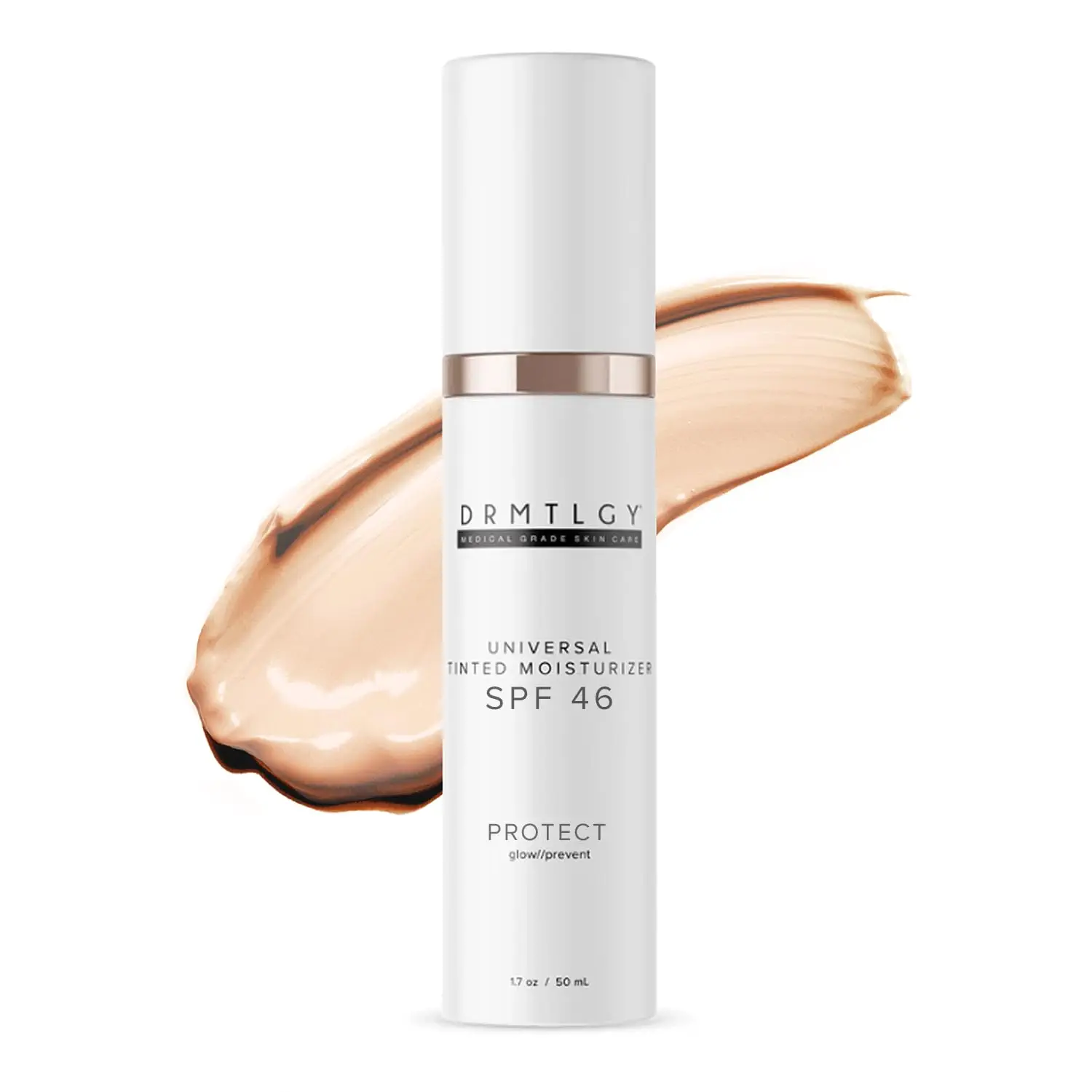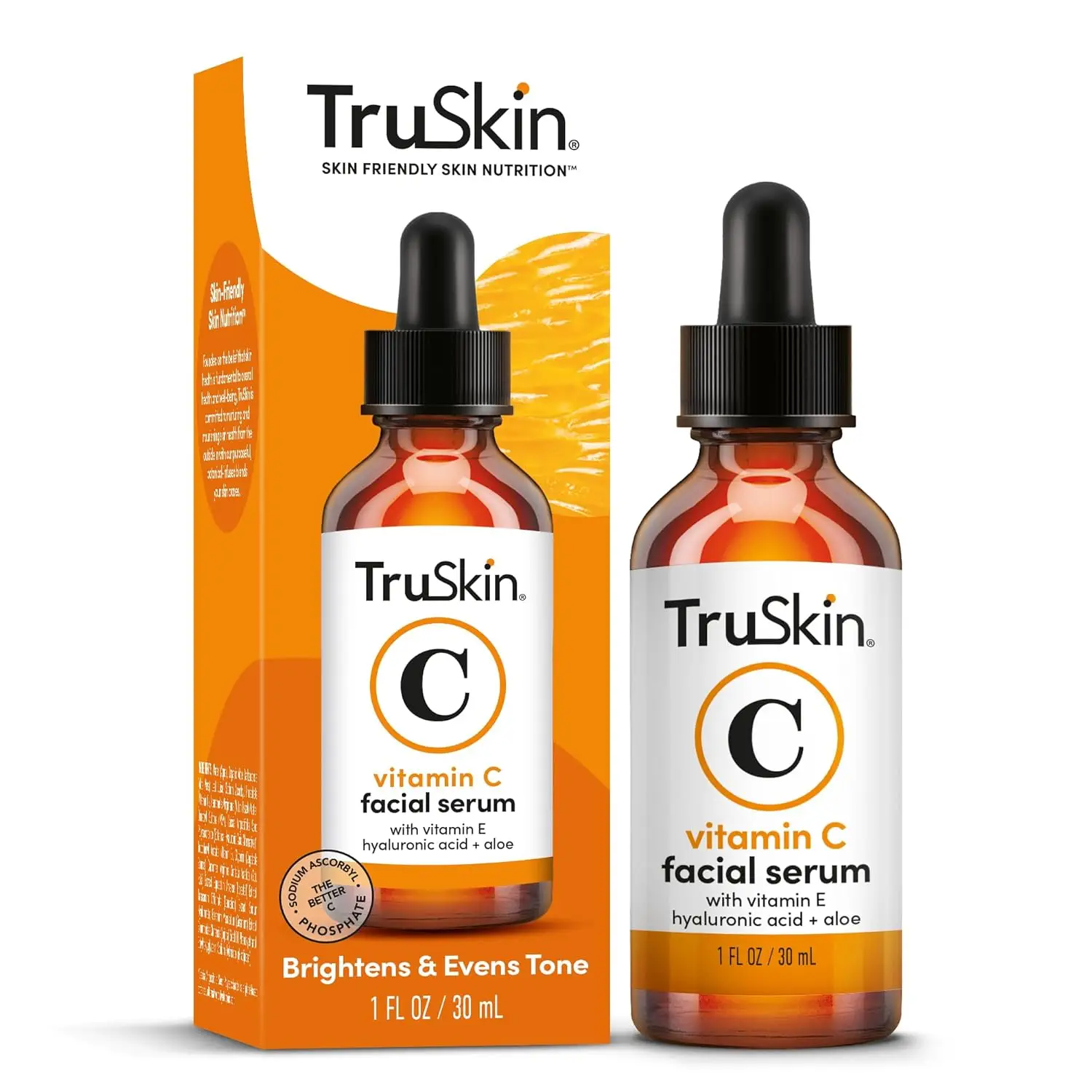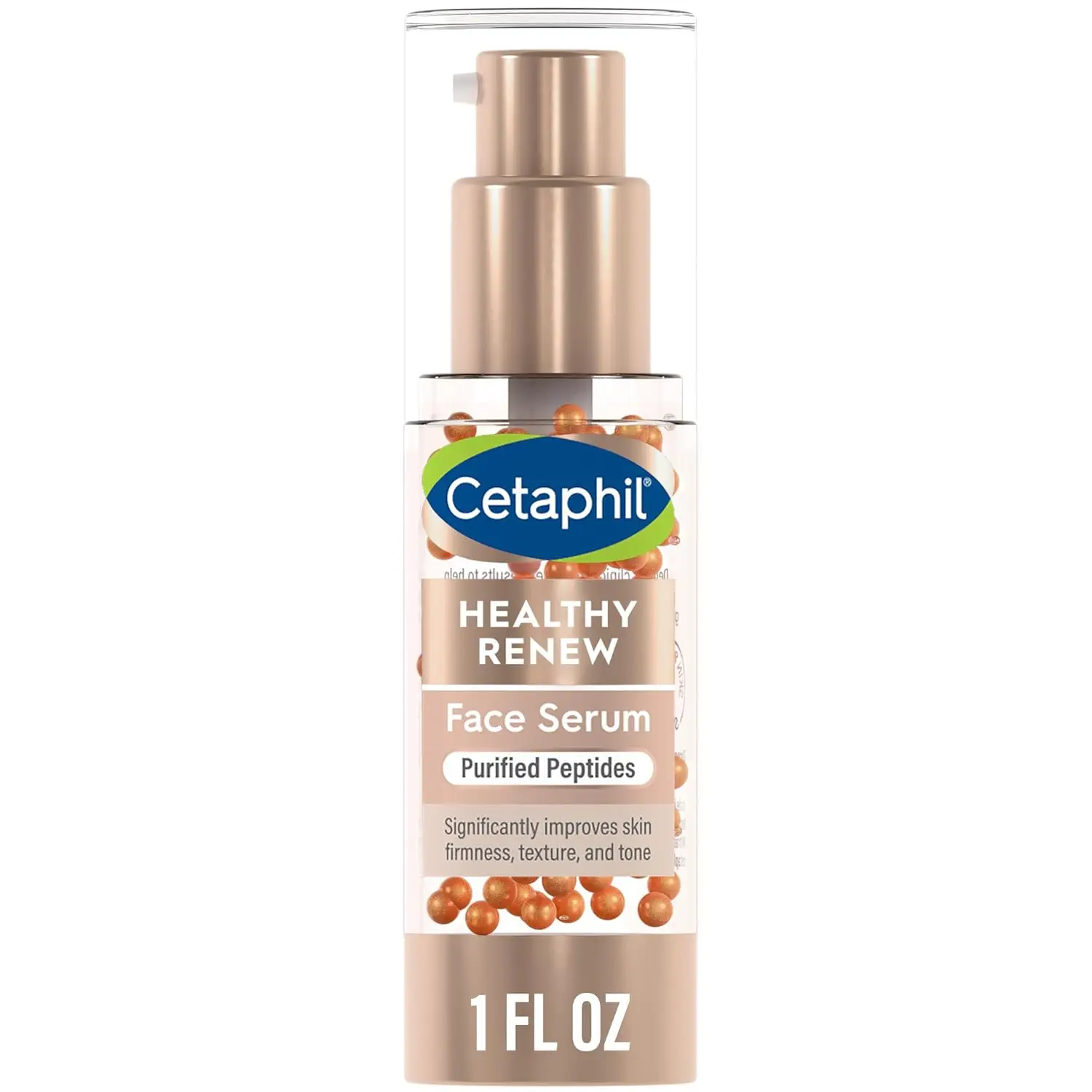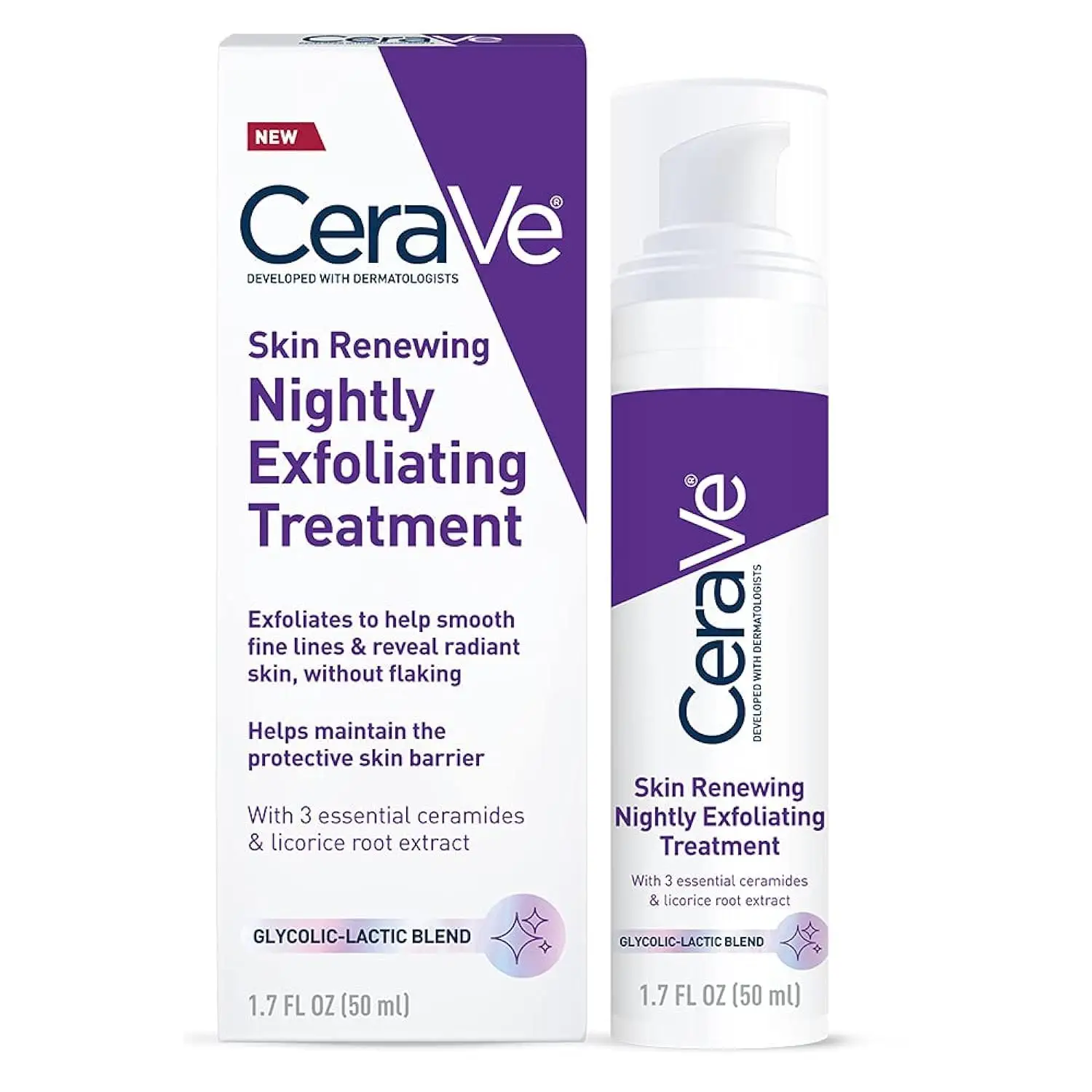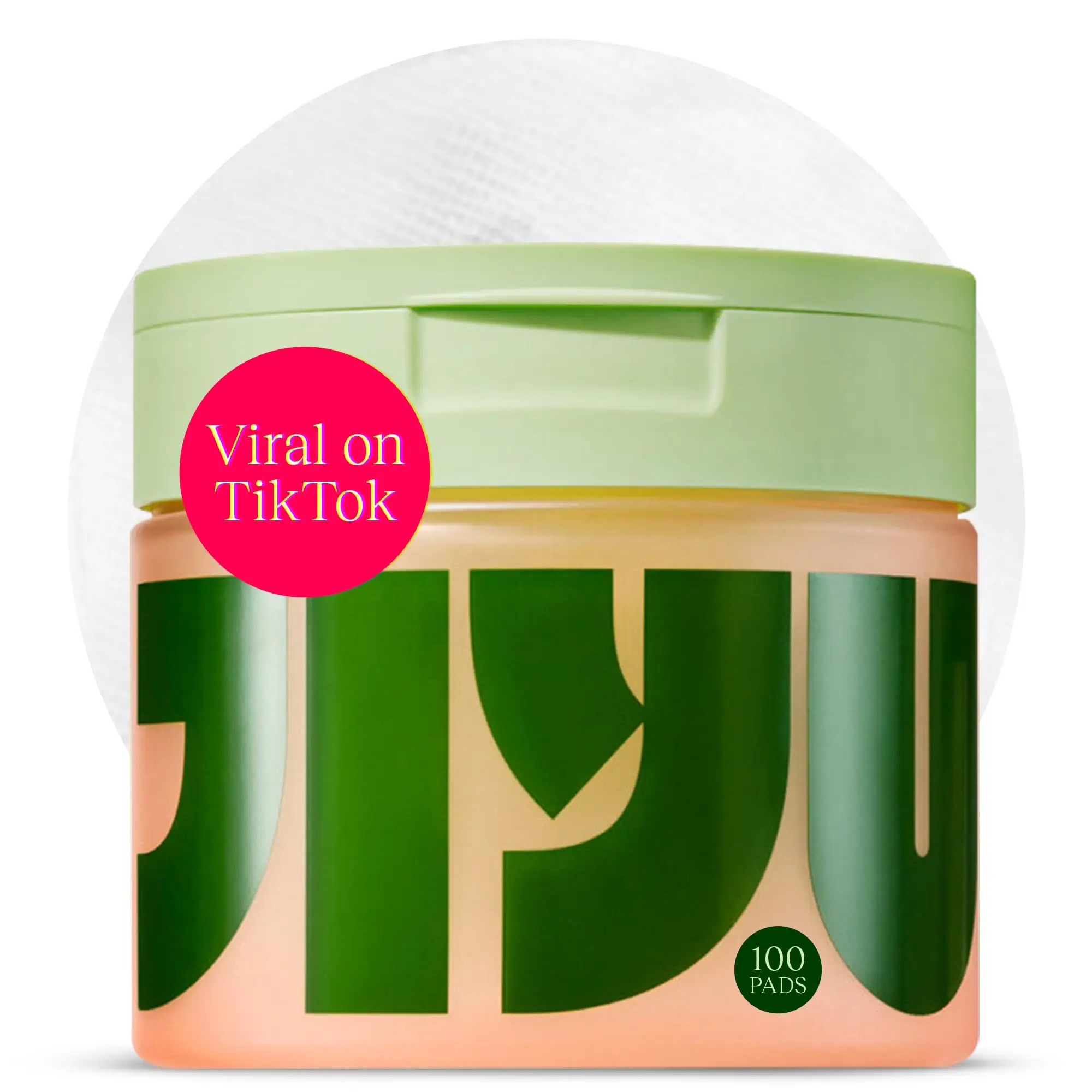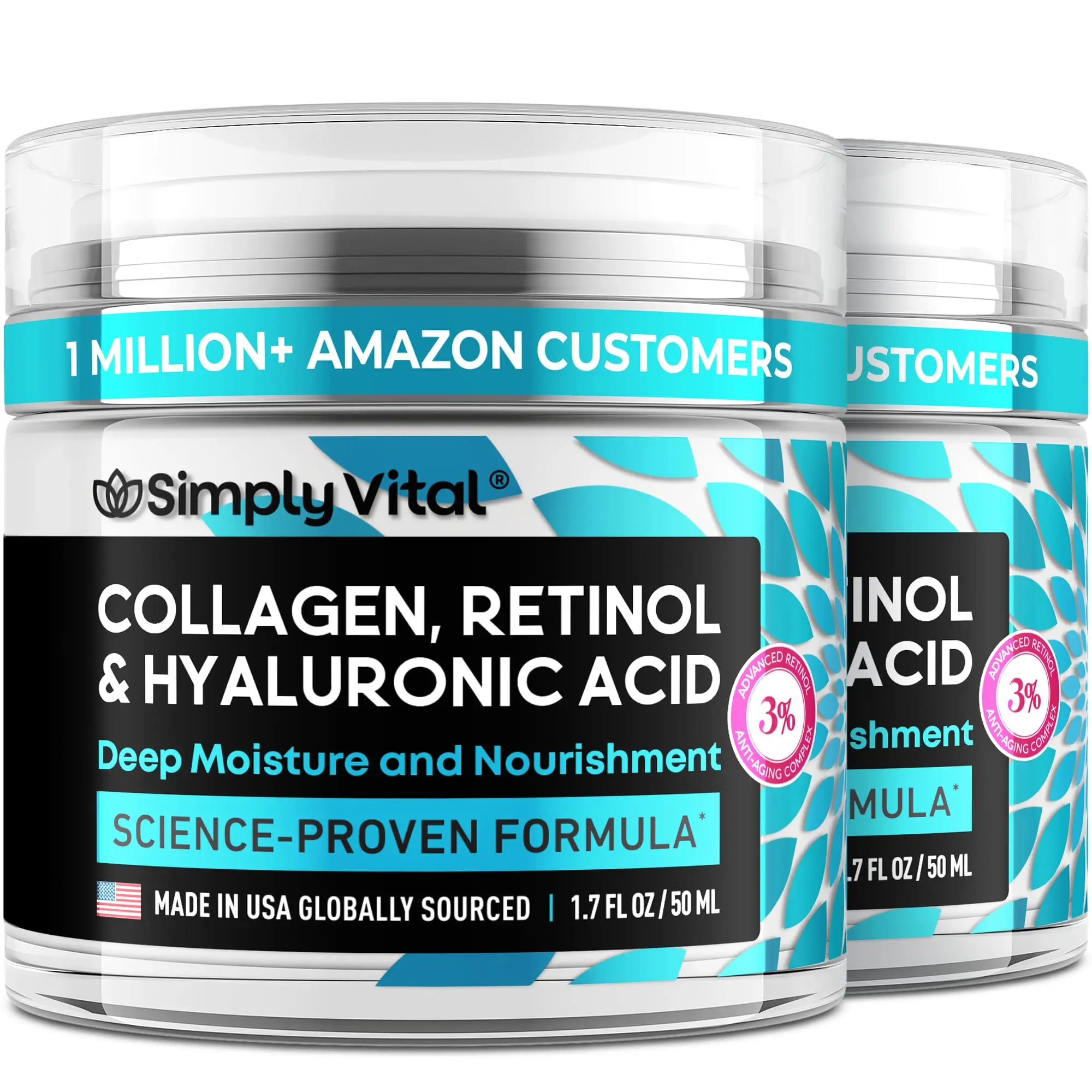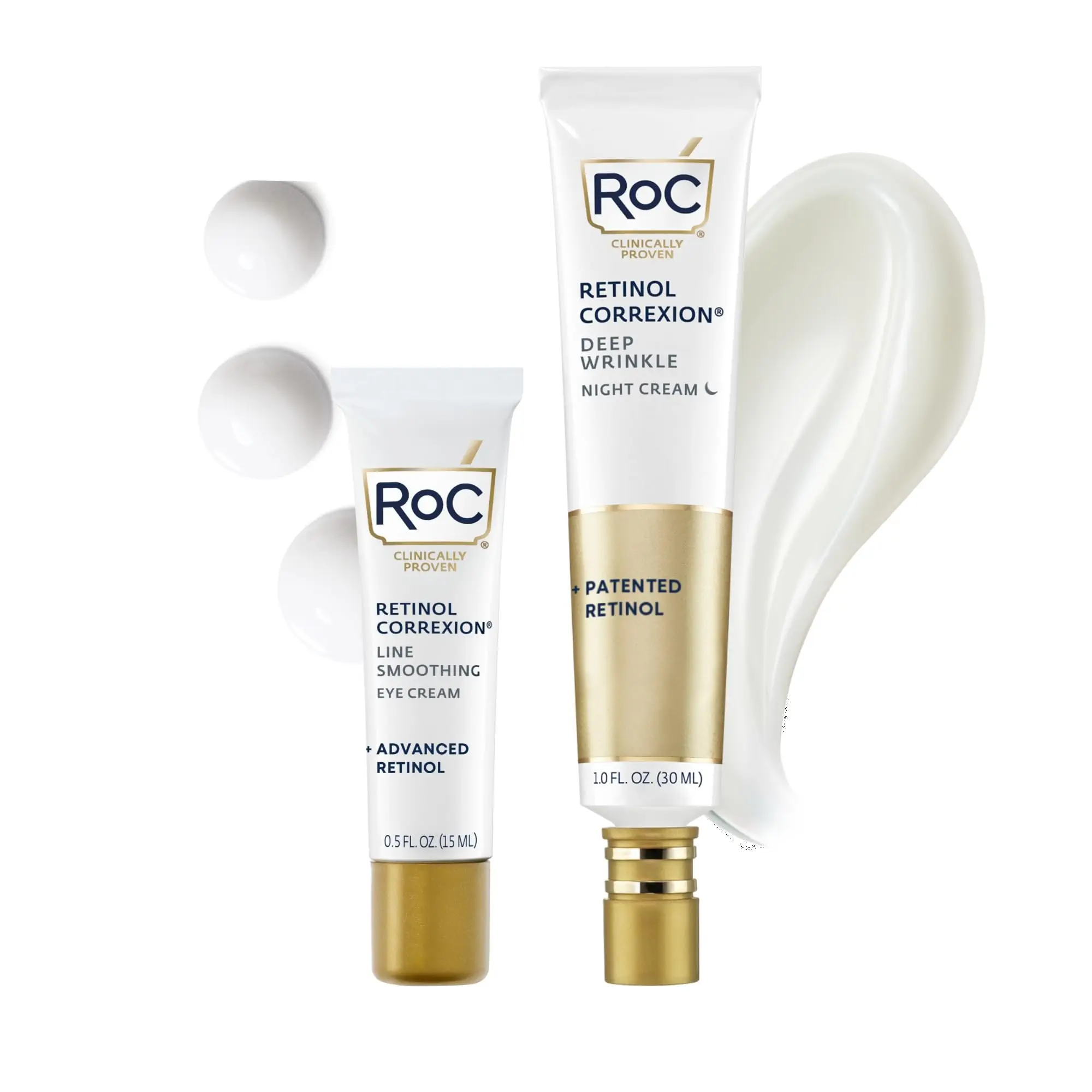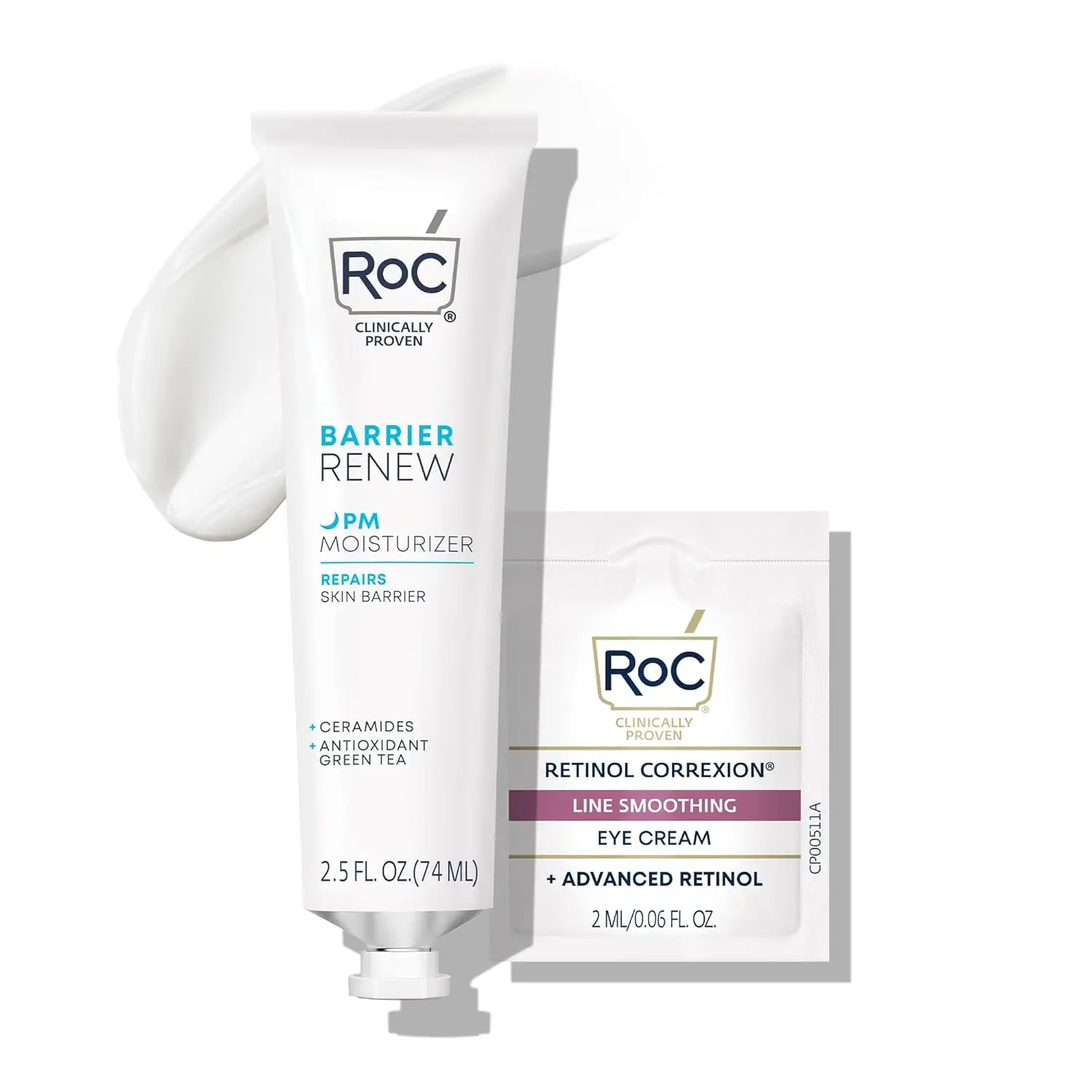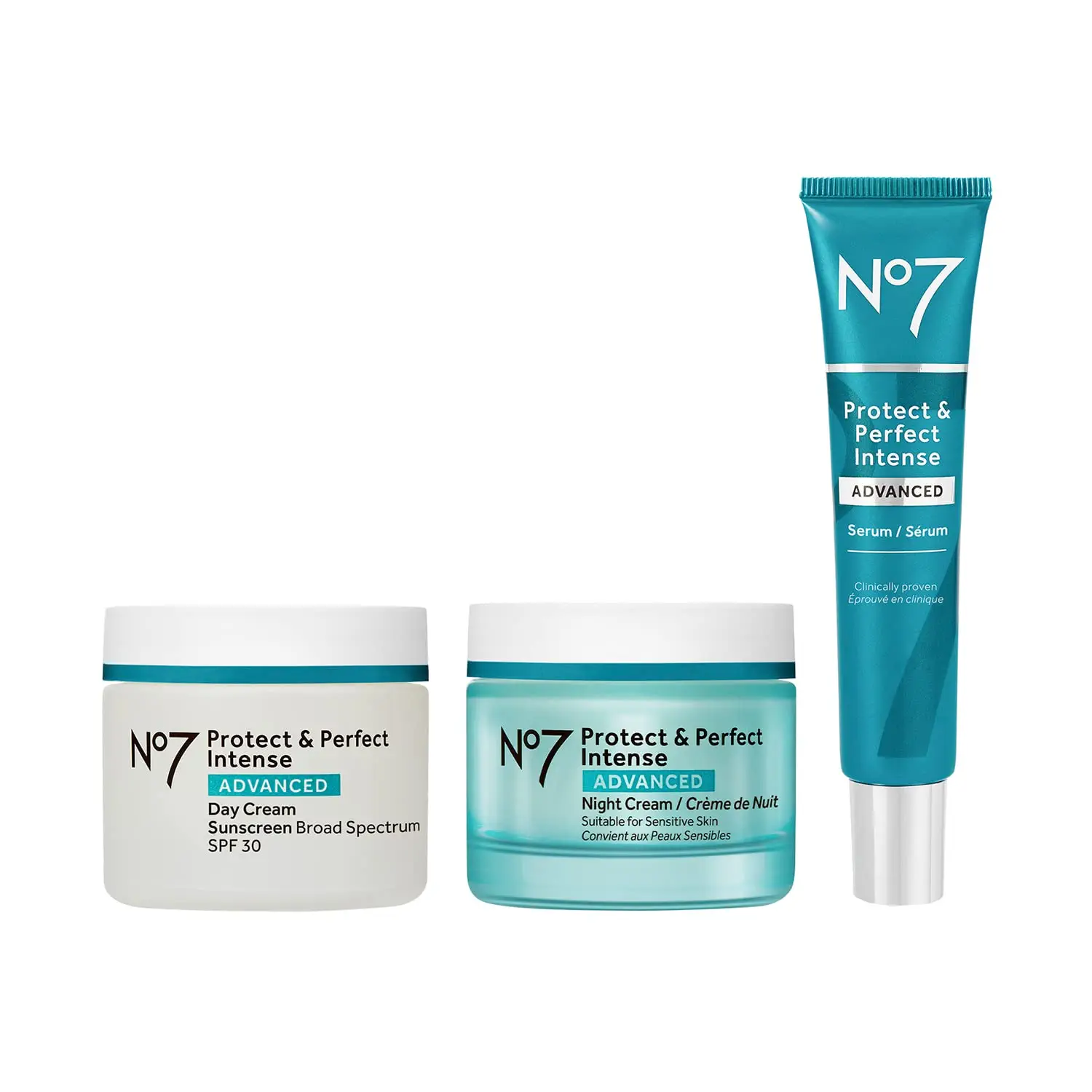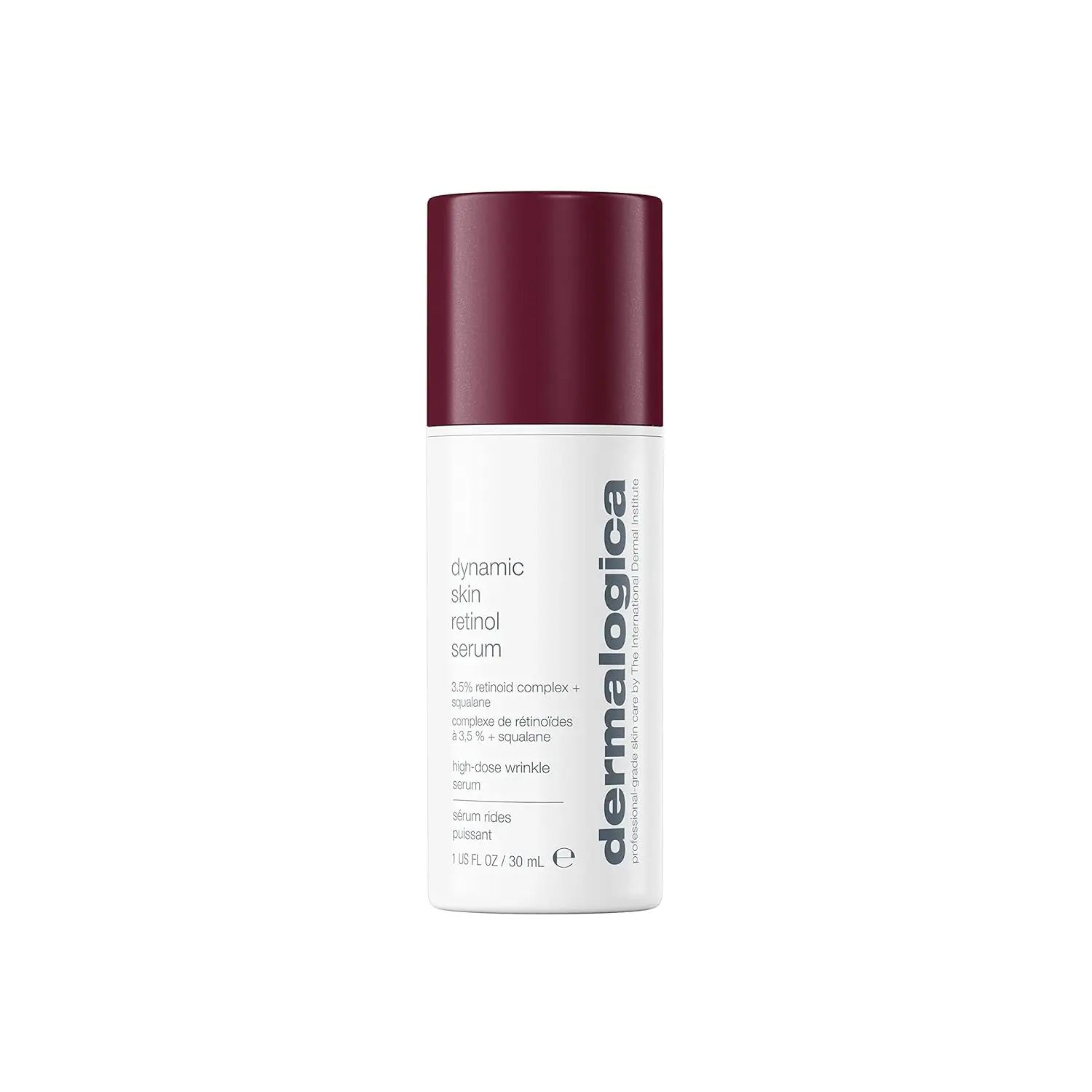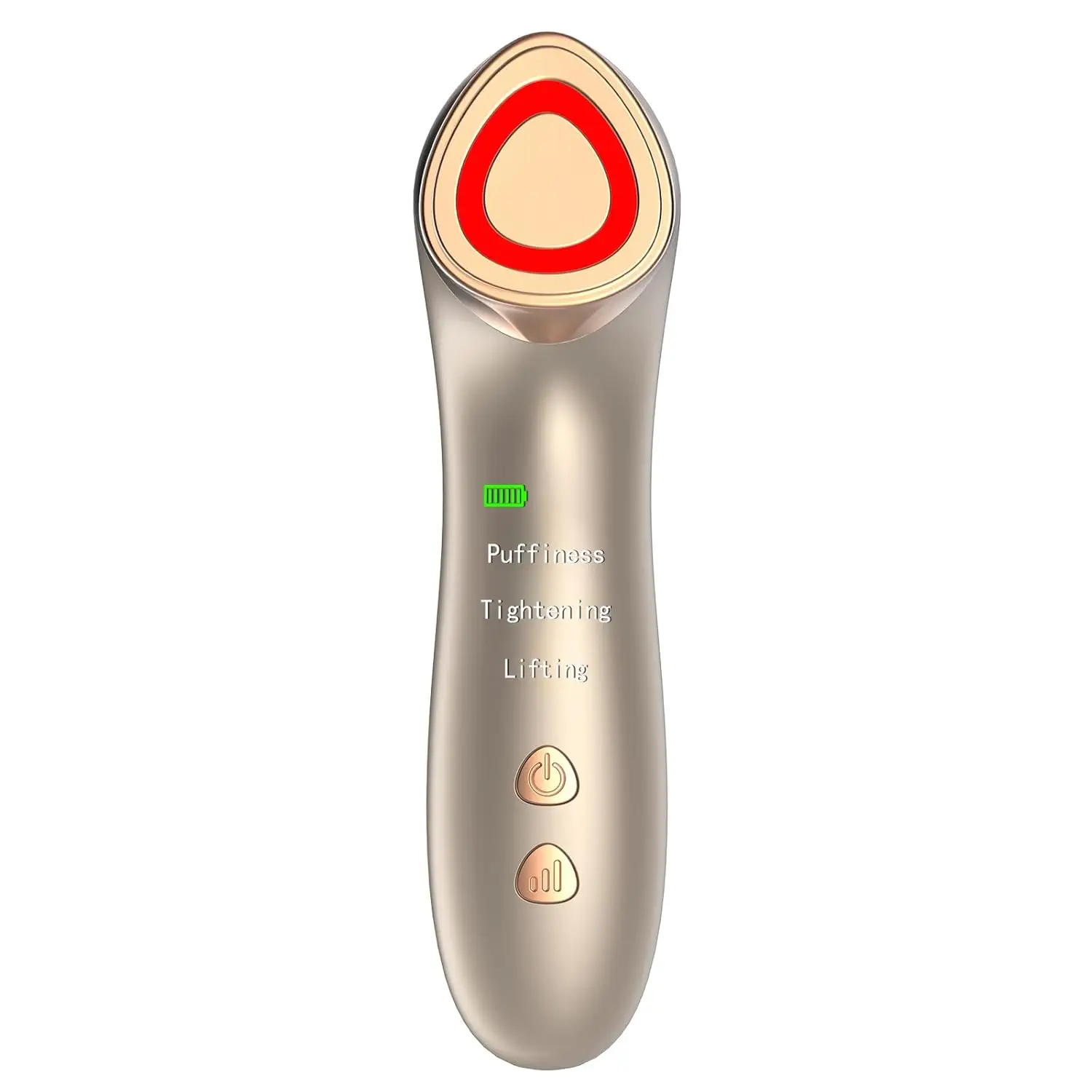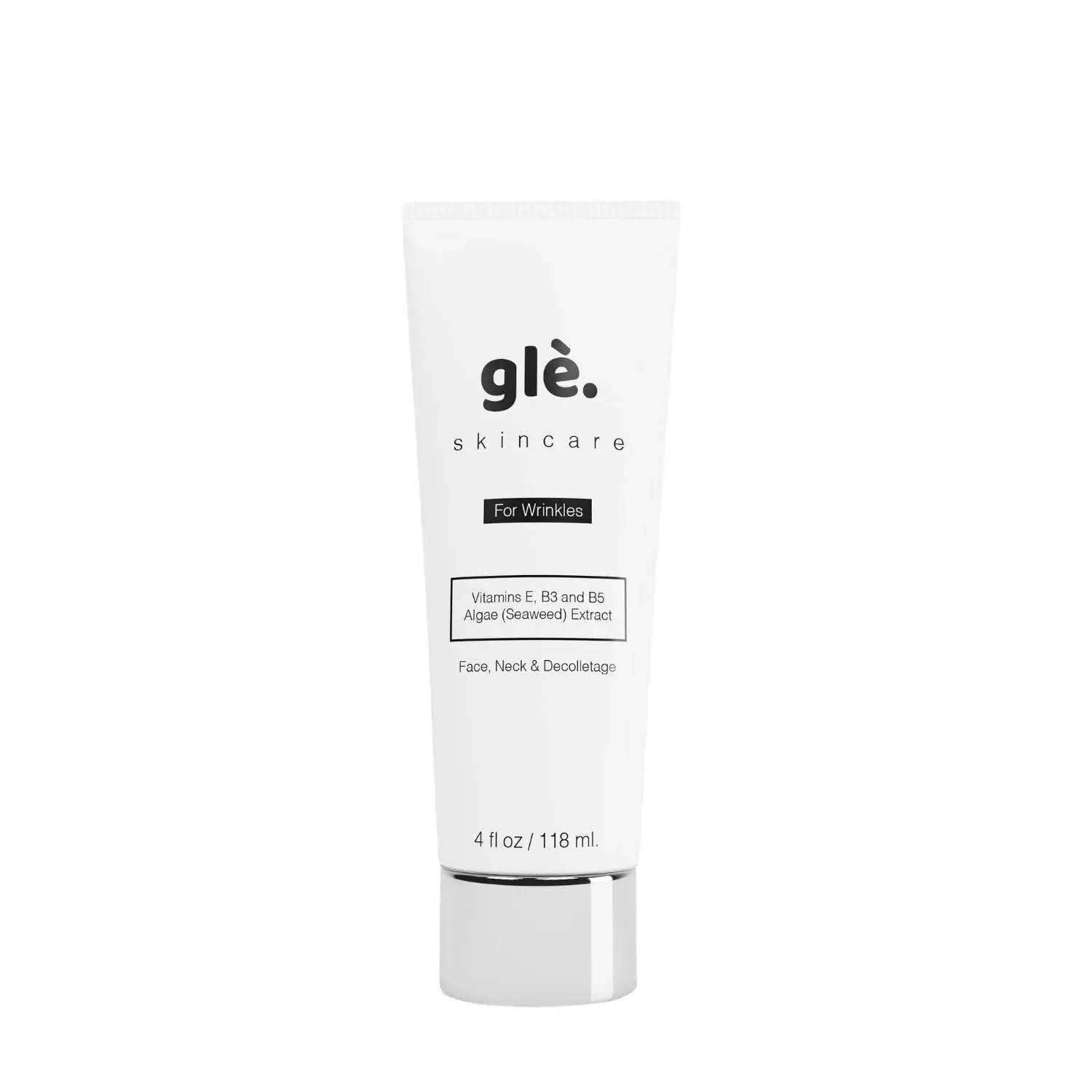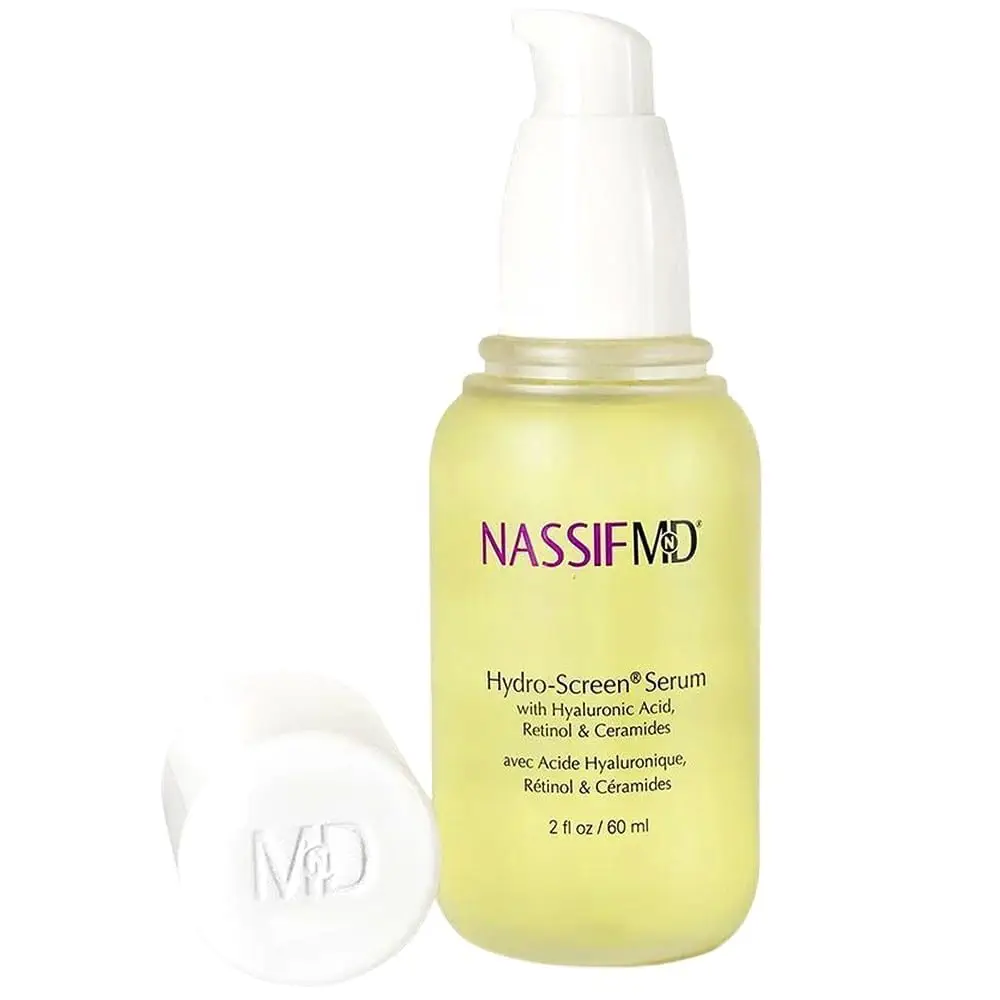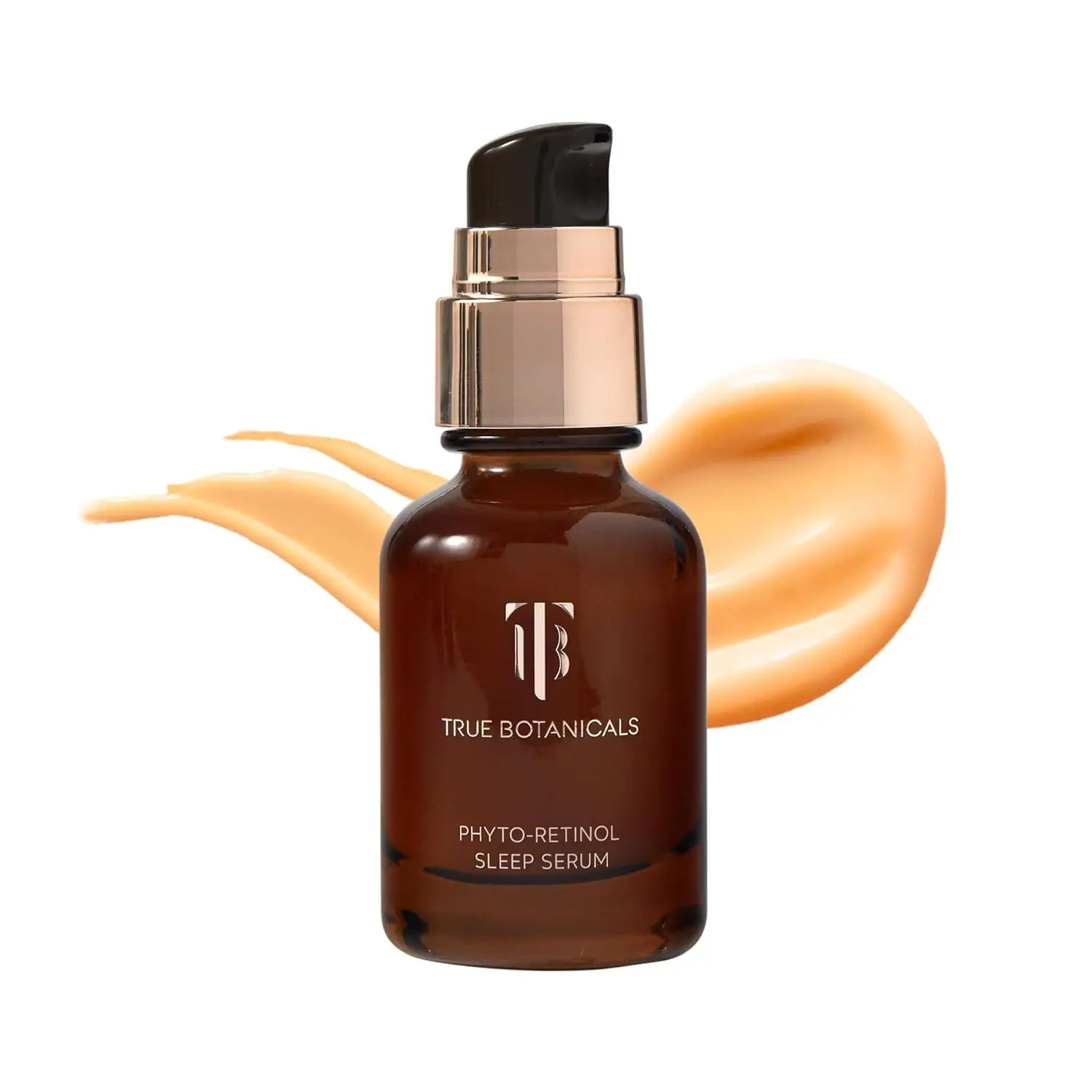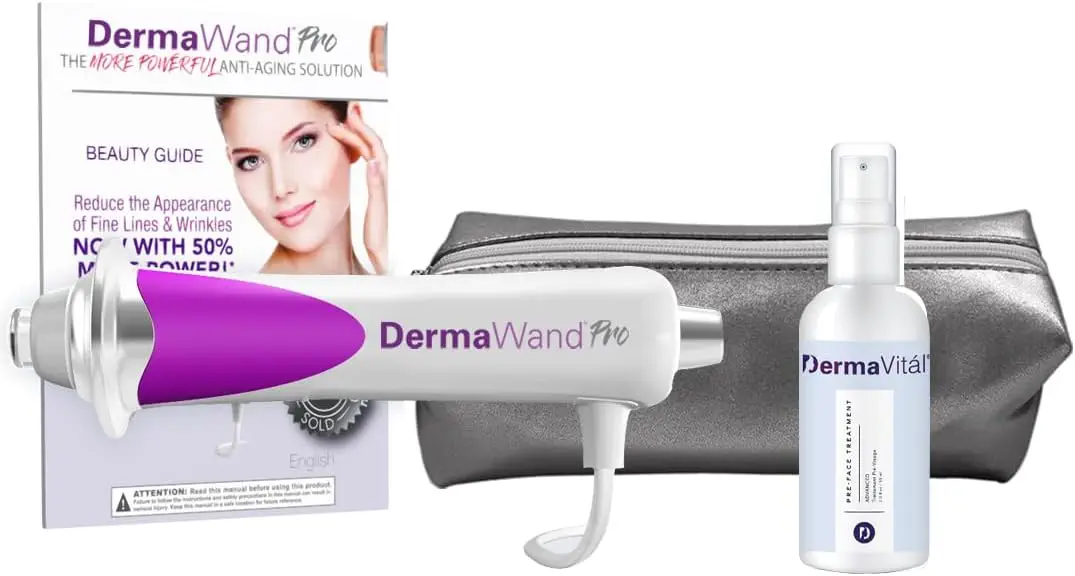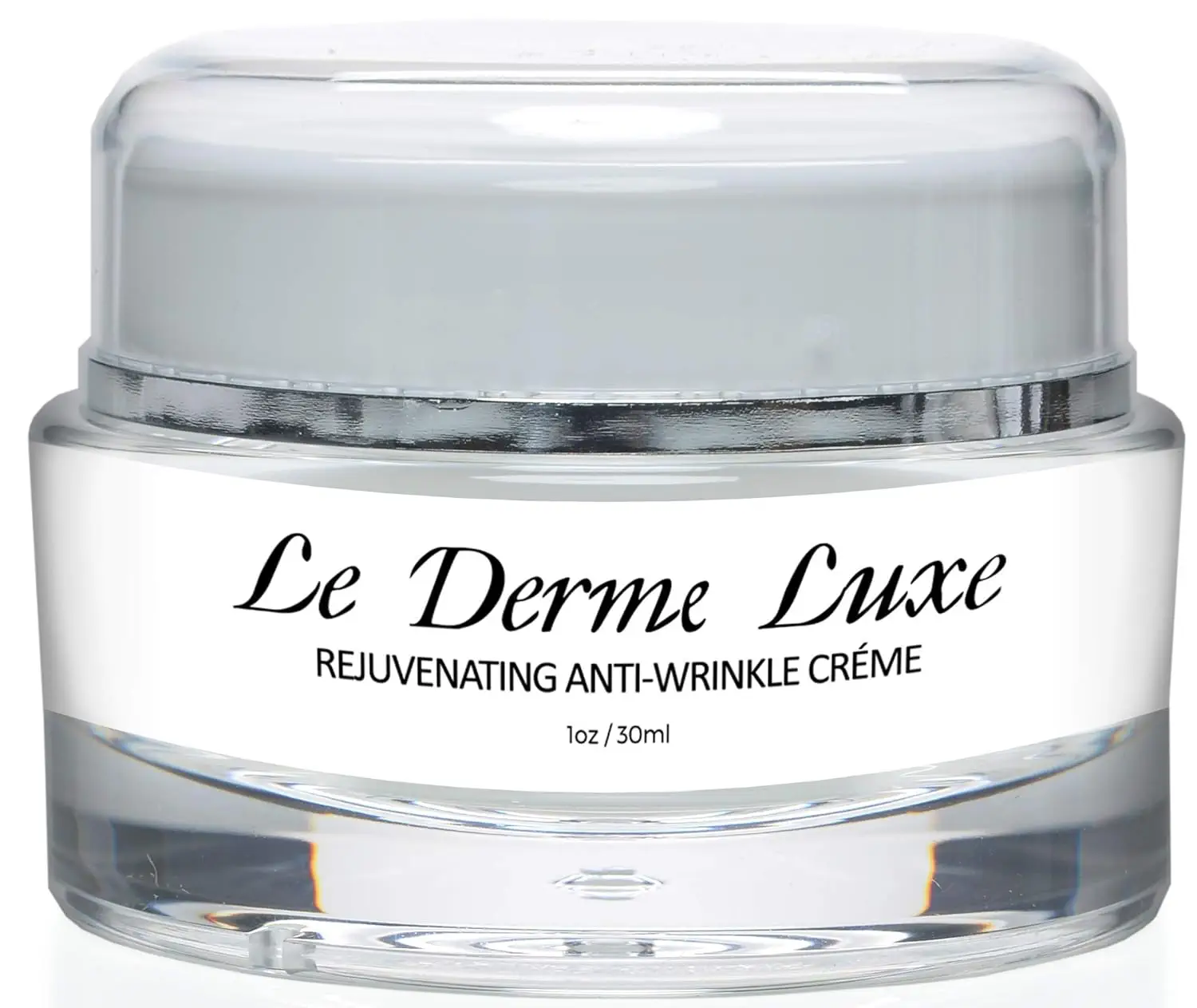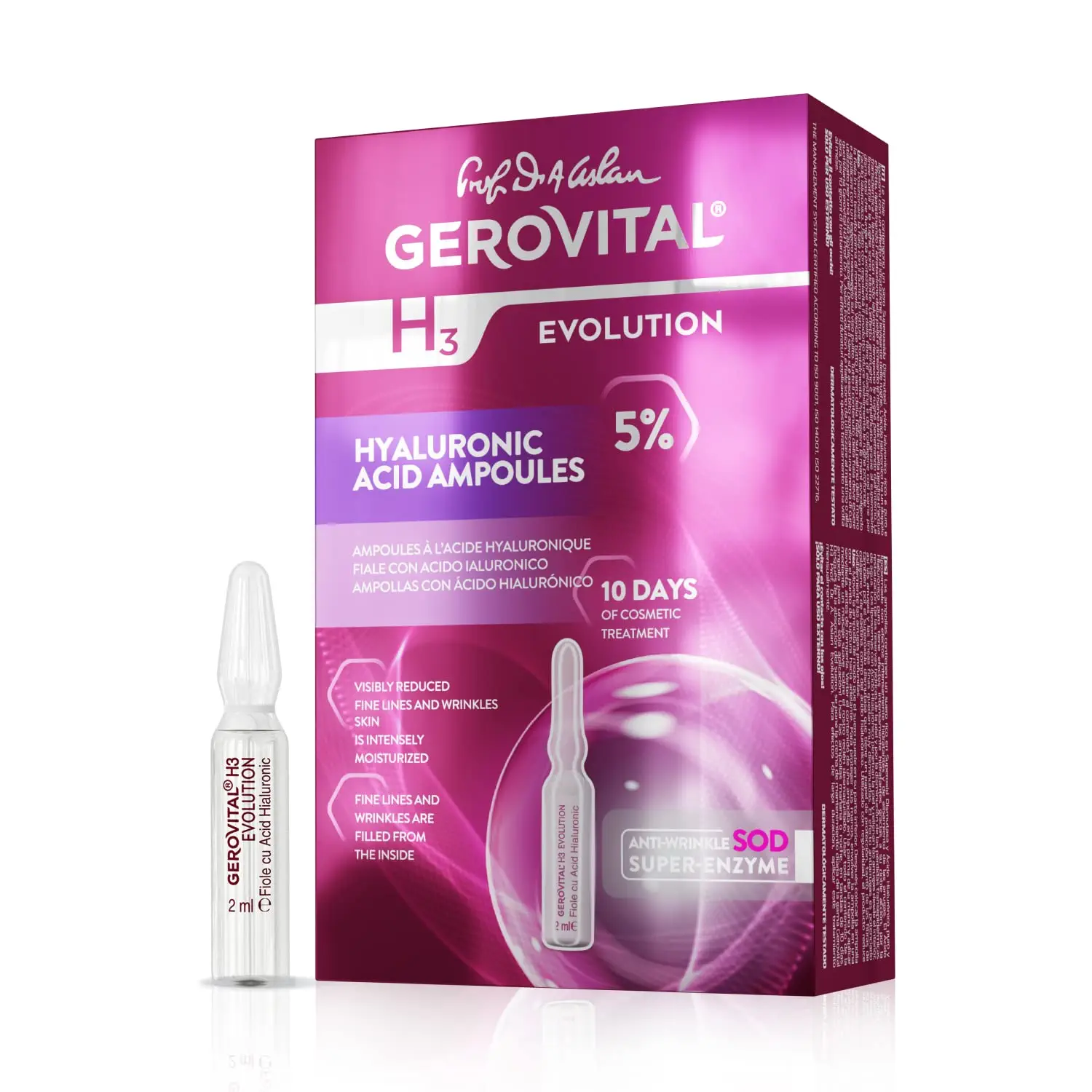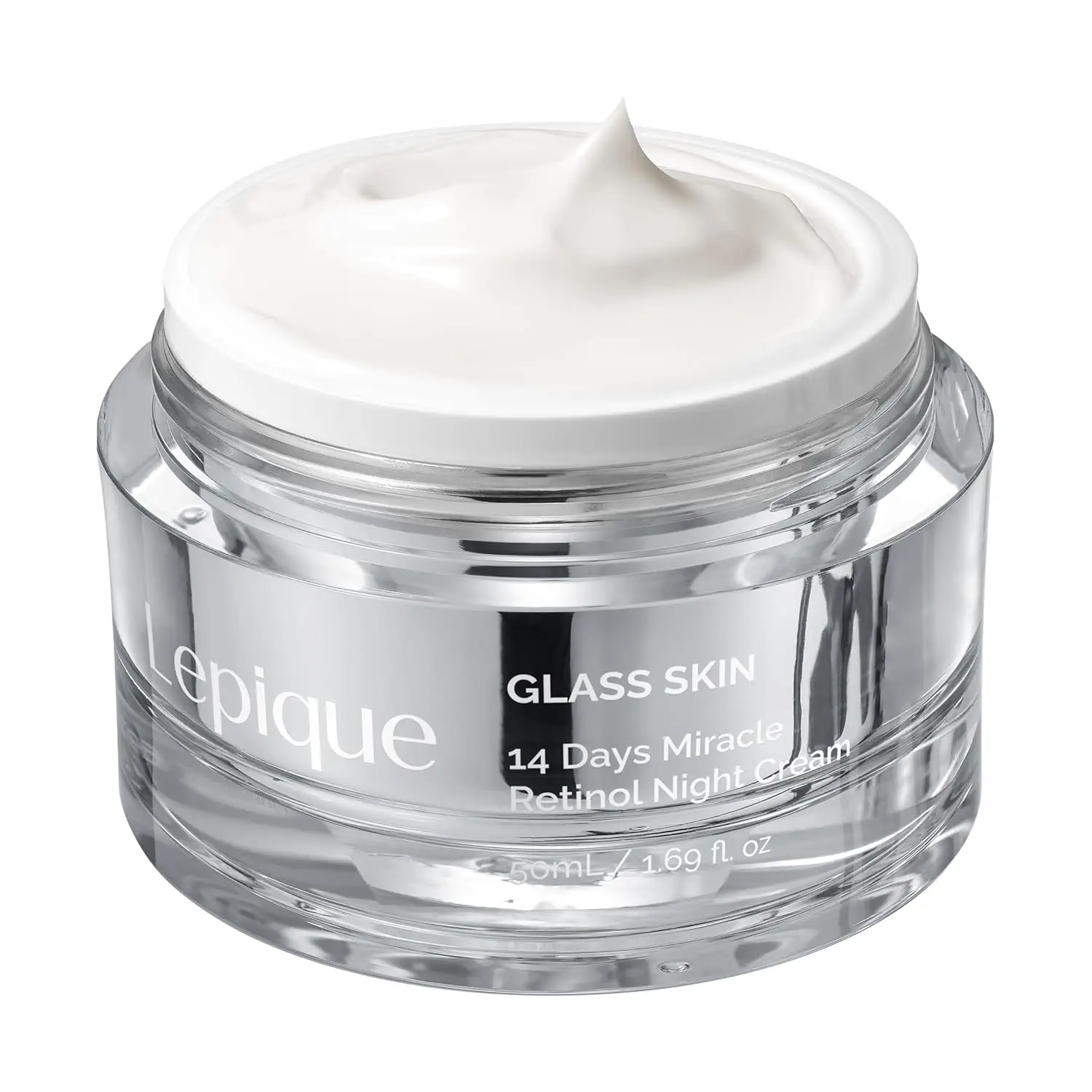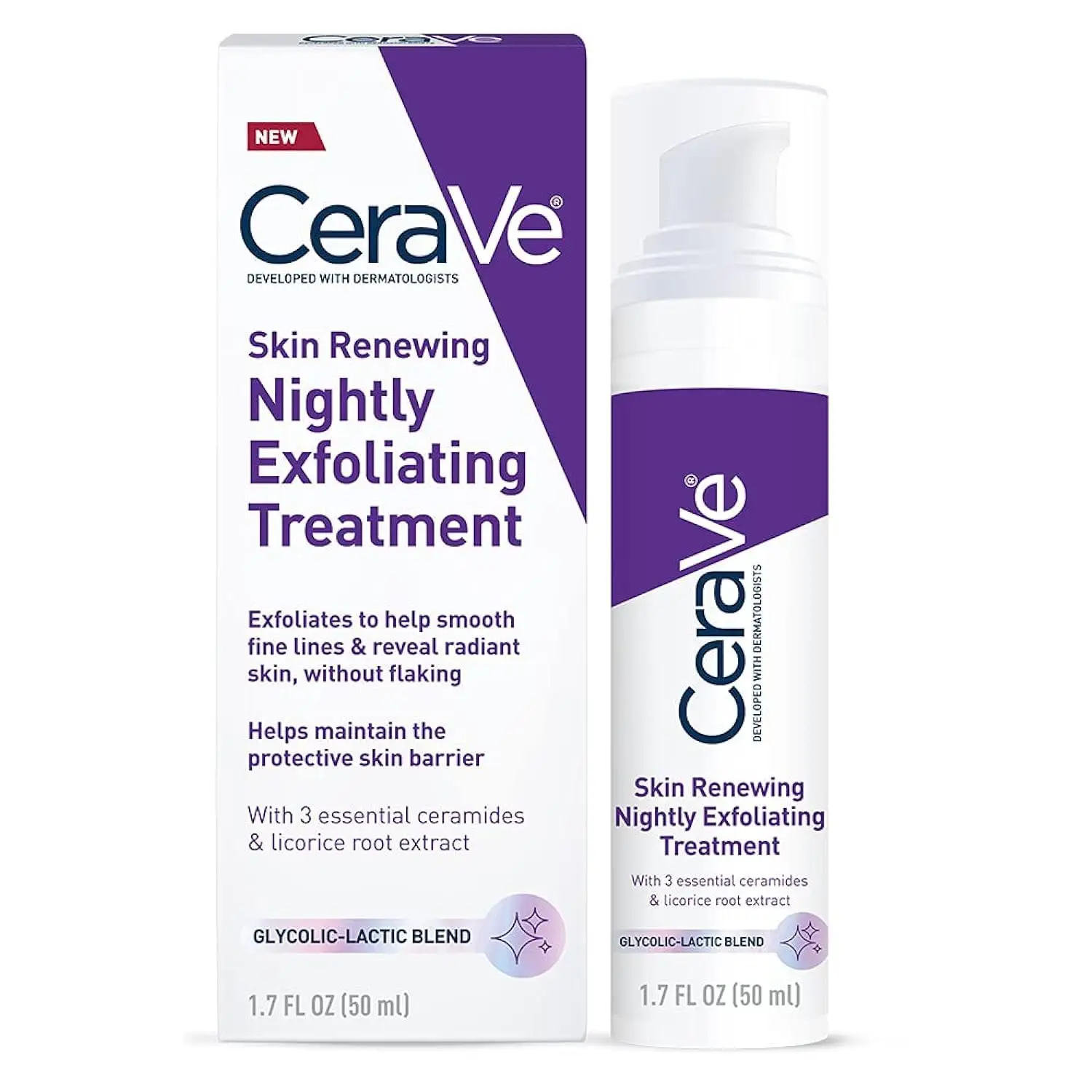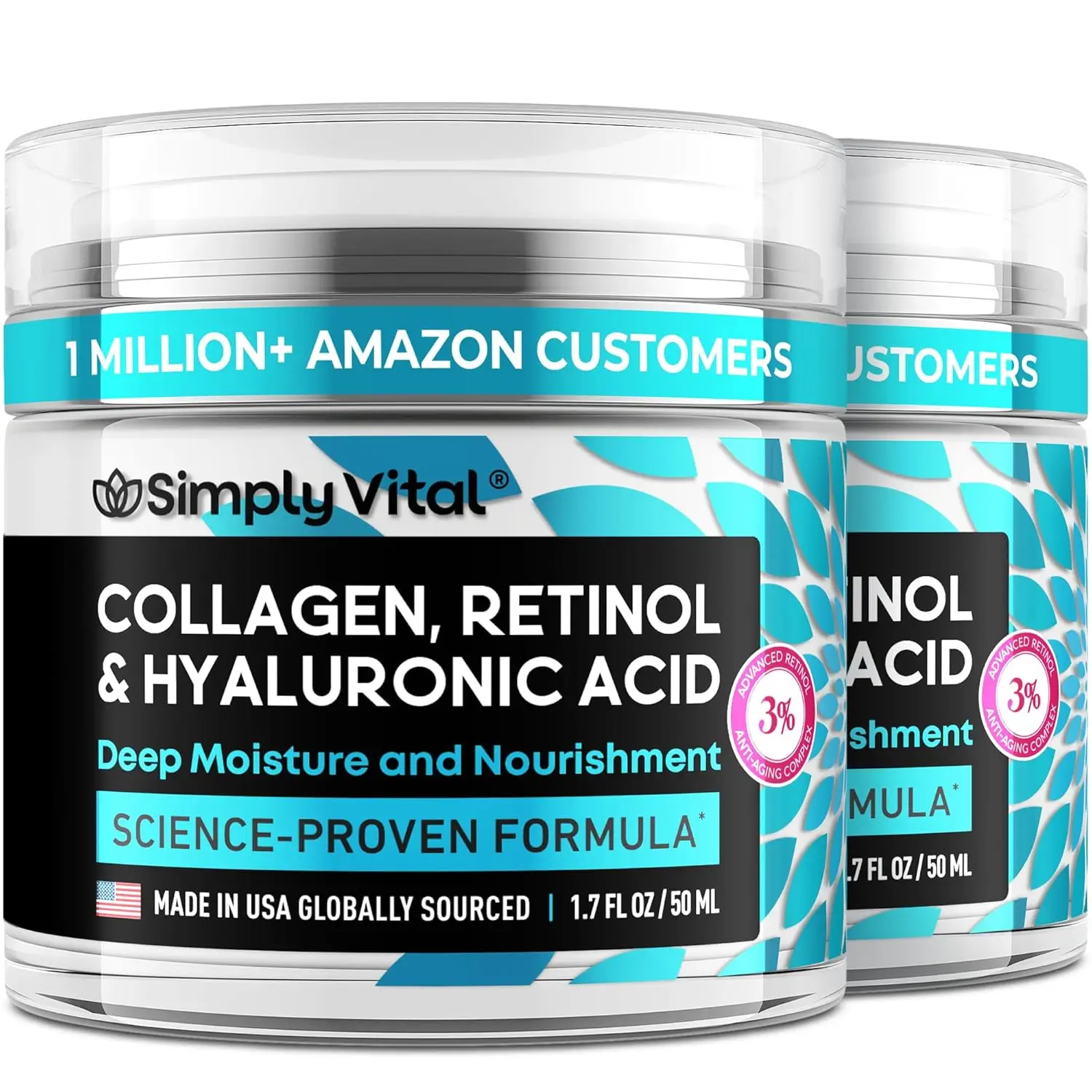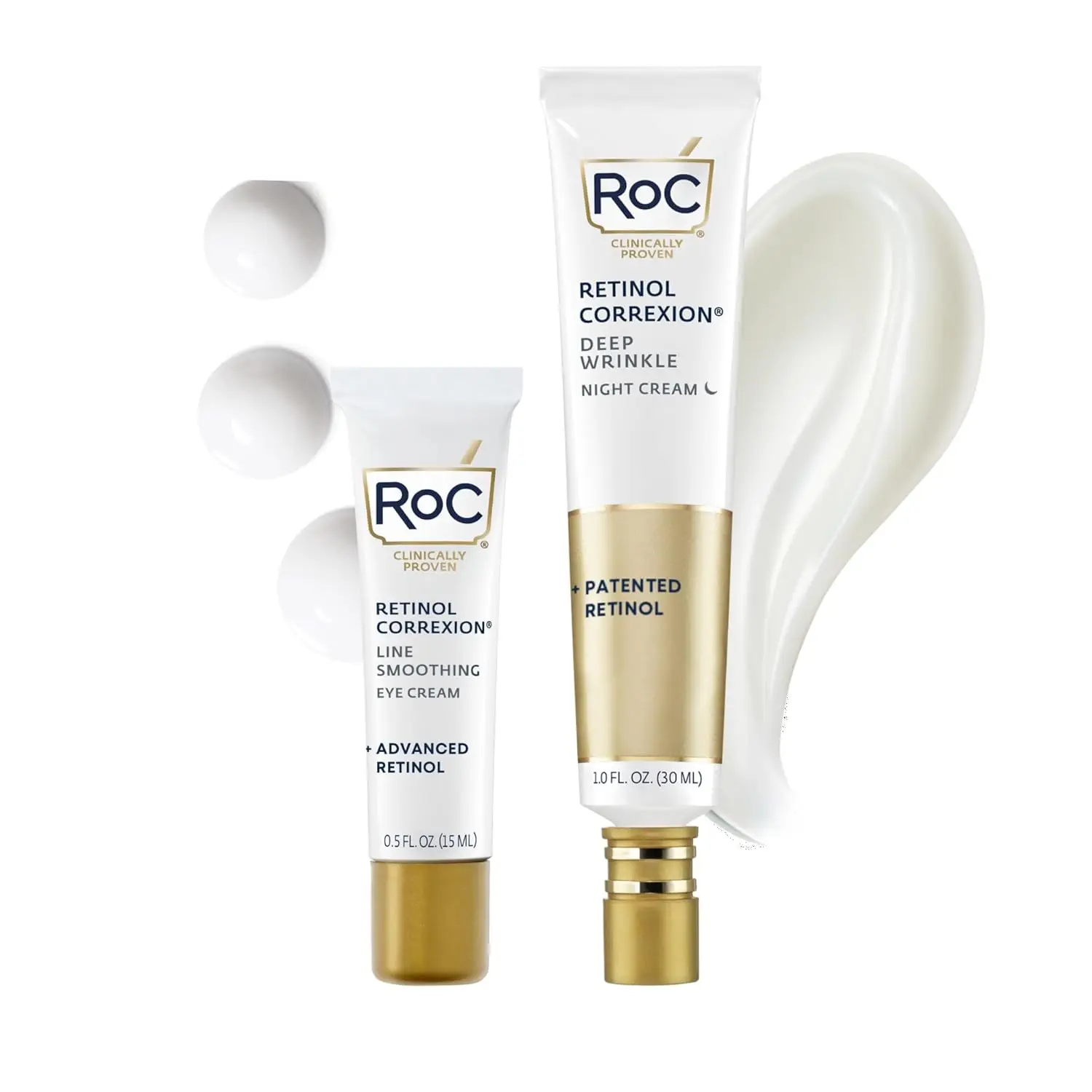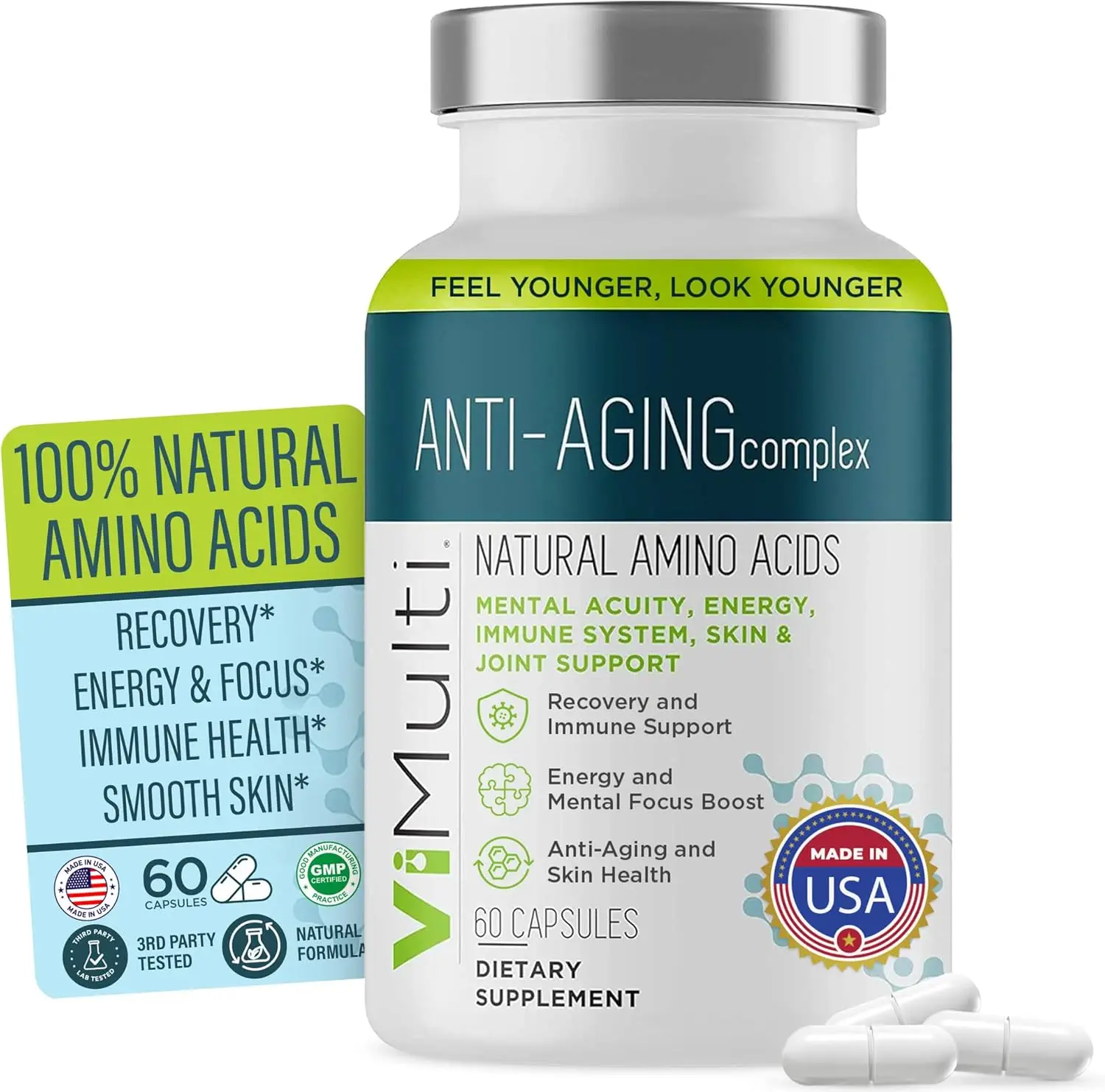As we age, our skin undergoes various changes that can affect its appearance and texture. Understanding the importance of anti-aging skincare is crucial for maintaining a youthful glow and healthy skin. By incorporating effective products into your routine, you can reduce the appearance of fine lines, wrinkles, and other signs of aging. This guide presents a selection of revolutionary anti-aging skincare products that can help you achieve smoother, more radiant skin.
Top Picks
Selection Criteria
When selecting the best anti-aging skincare products, we considered factors such as effectiveness, ingredients, user reviews, and overall value for money. Each product was evaluated based on its ability to deliver visible results while being suitable for various skin types.
DRMTLGY Anti-Aging Tinted Moisturizer with SPF 46

This tinted moisturizer is a game changer for anyone looking to simplify their skincare routine while still achieving that radiant, dewy look. With SPF 46, it not only hydrates your skin but also protects it from harmful UV rays. The universal tint blends seamlessly with various skin tones, making it perfect for daily wear or special occasions. Whether you’re heading to the office or out for brunch, this lightweight formula gives you just the right amount of coverage without feeling heavy. Plus, it’s cruelty-free and made in the USA, which is always a bonus. If you’re after a natural glow without the fuss of a full makeup routine, this is definitely worth a try.
What People Say
Users rave about its lightweight feel and natural finish, making it a staple in their daily routines. Many appreciate the high SPF and how it blends effortlessly into their skin, providing a fresh, dewy look without the heaviness of traditional foundations.
I absolutely love this medical grade tinted moisturizer. The SPF 46 is perfect for everyday protection and use. It is great for every skin tone and gives a lovely glow. I have been using this for 2 years now and this brand’s price point is less expensive than others which is great for the pocket book.
– KiwiYankee
A couple years ago I started my search for a leaping bunny certified sunscreen that felt comfortable on my face. This tinted moisturizer really evens out my complexion. It’s like a very light foundation almost, and looks really natural. As far as sun protection goes, this is a 10/10.
– Reagan Kosmatine
Why You’ll Love It
- Broad spectrum SPF 46 for sun protection
- Lightweight and non-greasy formula
- Universal tint that suits various skin tones
- Hydrates and improves skin texture over time
- Perfect for daily wear or special occasions
Smart Investment for Your Skin
Given its dual function as both a moisturizer and sunscreen, this product can save you money on separate skincare items. Plus, its long-lasting formula means you won’t need to reapply as often, making it a cost-effective choice in the long run.
Current Price: $29.00
Rating: 4.2 (Total: 30,990+)
Buy Now
TruSkin Vitamin C Serum

TruSkin Vitamin C Serum is a delightful addition to any skincare routine, especially if you’re looking to brighten your complexion and tackle those pesky fine lines. This serum combines the power of Vitamin C, Hyaluronic Acid, and Vitamin E to hydrate and rejuvenate your skin. It’s lightweight and absorbs quickly, making it perfect for daily use or as a boost before a special occasion. Whether you’re heading to work or a night out, this serum helps your skin look fresh and radiant. Plus, it’s cruelty-free and made in the USA, which is a nice touch for conscious consumers. If you’re on the hunt for a product that delivers visible results without the fuss, this one is definitely worth considering.
What People Say
Users love how quickly this serum absorbs and the noticeable difference it makes in their skin’s brightness and texture. Many appreciate the combination of powerful ingredients that work together to provide hydration and a youthful glow.
I’ve been using TruSkin Vitamin C Serum religiously for the last 3 months. My skin is smooth, with a slight glow. The price point is perfect, and my dark spots are almost gone.
– sammy1
Using this serum every day has transformed my skin. It’s brighter, clearer, and more radiant. The combination of Vitamin C, Hyaluronic Acid, and Vitamin E is like a superfood feast for my face.
– Michael K.
Why You’ll Love It
- Brightens skin tone and reduces dark spots
- Hydrates and nourishes with Hyaluronic Acid
- Lightweight and fast-absorbing formula
- Cruelty-free and made in the USA
- Suitable for all skin types
Smart Investment for Your Skin
With its effective formulation, this serum can replace multiple products in your routine, potentially saving you money on additional treatments. Plus, a little goes a long way, making it a smart investment for long-term skincare.
Current Price: $21.97
Rating: 4.3 (Total: 148,833+)
Buy Now
Cetaphil Healthy Renew Anti Aging Face Serum

Cetaphil Healthy Renew Anti Aging Face Serum is a gentle yet effective option for anyone looking to enhance their skincare routine. This serum is designed for sensitive skin and combines the power of niacinamide and peptides to help improve skin firmness and texture. It’s perfect for daily use, whether you’re getting ready for a busy day or prepping for a special evening out. The lightweight formula absorbs quickly, leaving your skin feeling hydrated and smooth without any greasy residue. Plus, it’s fragrance-free, making it a great choice for those who prefer a more subtle approach to skincare. If you’re on the lookout for a product that can help you maintain a youthful glow, this serum is definitely worth a try.
What People Say
Users rave about how quickly this serum absorbs and the visible improvements in their skin’s texture and firmness. Many appreciate its gentle formulation, making it suitable for even the most sensitive skin types.
I’ve been using this serum for a few weeks now, and I can already see a difference in my skin. It’s smoother and more radiant. I love that it doesn’t irritate my sensitive skin, and I can wear it under makeup without any issues.
– 素敵な
This serum has become a staple in my skincare routine. It hydrates beautifully and has helped with the firmness of my skin. I appreciate that it’s gentle enough for daily use, and my skin feels so much healthier since I started using it.
– Sandy
Why You’ll Love It
- Improves skin firmness, texture, and tone in just 2 weeks
- Hydrates for 24 hours, revealing radiant skin
- Gentle alternative to retinol for sensitive skin
- Hypoallergenic and fragrance-free formula
- Defends against signs of skin sensitivity
Smart Investment for Your Skin
With its effective ingredients, this serum can replace multiple products in your routine, potentially saving you money on additional treatments. A little goes a long way, making it a smart investment for long-term skincare.
Current Price: $18.99
Rating: 4.4 (Total: 1,260+)
Buy Now
CeraVe Skin Renewing Nightly Exfoliating Treatment

The CeraVe Skin Renewing Nightly Exfoliating Treatment is a game-changer for anyone looking to refresh their skincare routine. This serum combines a 5% blend of glycolic and lactic acids, making it a gentle yet effective option for tackling fine lines and dark spots. It’s perfect for nightly use, allowing you to wake up to smoother, more radiant skin. The lightweight gel formula absorbs quickly, so you can easily layer it under your favorite night cream or moisturizer. Plus, it’s fragrance-free and non-comedogenic, making it suitable for all skin types. If you’re on a quest for youthful-looking skin, this treatment is definitely worth considering.
What People Say
Users appreciate how this serum effectively brightens their complexion while being gentle enough for sensitive skin. Many have noticed visible improvements in their skin’s texture and overall radiance after consistent use.
I have been using this for months and it is amazing! My skin is looking more supple and dark marks are seeming to fade. Great product and lasts super long.
– AM
This treatment provides gentle yet effective exfoliation. It helps to remove dead skin cells, leaving my skin feeling smooth and refreshed without being overly harsh or irritating.
– Christy s.
Why You’ll Love It
- Gently exfoliates for smoother skin texture
- Helps reduce the appearance of dark spots
- Contains essential ceramides for skin barrier support
- Non-irritating formula suitable for all skin types
- Developed with dermatologists for optimal results
Smart Investment for Your Skin
This serum can replace multiple products in your routine, potentially saving you money on additional treatments. A little goes a long way, making it a smart investment for long-term skincare.
Current Price: $23.86
Rating: 4.6 (Total: 6,310+)
Buy Now
Jiyu Korean Skincare Anti-Aging Toner Pads

The Jiyu Korean Skincare Anti-Aging Toner Pads are a delightful addition to any skincare routine, especially if you’re looking to tackle dark spots and fine lines. Infused with snail mucin, niacinamide, and peptides, these pads not only hydrate but also help rejuvenate your skin. They’re perfect for daily use or as a quick pick-me-up when your skin needs a little extra love. Just swipe one of these pads across your face, and you’ll feel an instant refresh. Plus, they come in a convenient container, making them easy to take on the go. If you’re after that youthful glow, these toner pads might just become your new favorite.
What People Say
Users rave about how these toner pads effectively brighten their complexion and improve skin texture. Many have noticed significant changes in their skin’s clarity and smoothness after consistent use.
I put off buying this product because it was pricey and I’m usually disappointed in skin care items. However, this got so many great reviews so I was intrigued. I finally bought it and it’s like nothing I ever tried. After using it for about 2 weeks there’s definitely a change in my skin. There’s no more redness, skin is much smoother. And I have very sensitive skin. If I’m feeling lazy and I don’t wear makeup it’s no big deal. There’s over a 3 month supply which I wasn’t aware of when I bought it. Very easy to use.
– Caroline 711
This product is amazing, you can see the improvement in your skin since the very first day. Your skin starts to look younger, soft, and clear. It is easy to use, the little pads are protected inside the container and you can take it anywhere with you.
– Daybe Venero
Why You’ll Love These Pads
- Hydrates and rejuvenates skin
- Helps reduce dark spots and fine lines
- Convenient and easy to use
- Suitable for all skin types
- Portable for on-the-go skincare
Great Value for Your Skincare Routine
With 100 pads in each container, these toner pads offer great value. They can replace multiple products in your routine, making them a smart investment for long-term skincare.
Current Price: $59.95
Rating: 4.6 (Total: 518+)
Buy Now
SimplyVital Collagen Face Moisturizer

The SimplyVital Collagen Face Moisturizer is a game-changer for anyone looking to maintain youthful skin. This anti-aging retinol cream is designed for your face, neck, and décolleté, making it a versatile addition to your skincare routine. With hyaluronic acid included, it provides deep hydration while promoting skin elasticity. Whether you’re using it daily or for special occasions, this moisturizer helps keep your skin looking fresh and vibrant. Plus, it’s lightweight and absorbs quickly, so you can layer it under makeup without feeling greasy. If you’re on the hunt for a reliable moisturizer that delivers results, this one is worth a try.
What People Say
Users appreciate how this moisturizer hydrates without feeling heavy, and many have noted improvements in their skin’s texture and clarity. It’s particularly praised for its affordability and effectiveness, making it a favorite among those with sensitive skin.
I really like this moisturizing facial cream! It is not greasy and has no heavy scent. I don’t have many wrinkles yet but it is one of the reasons I bought this cream, wanted to get started ahead of time! One thing I noticed but is not mentioned or advertised for this product, I did have some sun damage spots on my face that are gone and that was a surprise to me because that’s not what I bought it for.
– Sadie
Very affordable product that works well. I have acne issues and Hidradenitis Suppurativa so I need to be very picky about what I put on my skin. This is light, does not clog my pores, and my face feels better and more hydrated after I use it. It’s not greasy, not heavy, and doesn’t trigger any acne or cysts for me.
– Amazon Queen
Why You’ll Love This Moisturizer
- Deep hydration for all-day moisture
- Helps reduce the appearance of fine lines
- Lightweight and non-greasy formula
- Suitable for sensitive skin types
- Versatile for face, neck, and décolleté
Smart Investment for Your Skincare
With a price point of $39.99 for a 2-pack, this moisturizer offers excellent value. It can easily replace multiple products in your routine, saving you both time and money in the long run.
Current Price: $39.99
Rating: 4.3 (Total: 20,836+)
Buy Now
RoC Retinol Correxion Value Set Duo

The RoC Retinol Correxion Value Set Duo is a fantastic duo for anyone looking to tackle deep wrinkles and dark circles. This set includes a Deep Wrinkle Anti-Aging Night Face Cream and a Daily Under Eye Cream, making it a comprehensive solution for your skincare routine. The night cream works while you sleep to visibly reduce the appearance of fine lines and deep wrinkles, while the eye cream targets puffiness and dark circles, leaving your skin looking refreshed and revitalized. It’s perfect for daily use or special occasions when you want to look your best. If you’re serious about anti-aging, this set is definitely worth considering.
What People Say
Users rave about the noticeable improvements in their skin’s texture and appearance, particularly praising the eye cream for its effectiveness against puffiness and dark circles. Many appreciate the lightweight feel and quick absorption of both products, making them easy to incorporate into any skincare routine.
I have only used this for a week but I am hooked! I do see a small difference already! What I love most is it doesn’t dry hard under your eye like some face masks do. This is just like lotion and soaks into your skin well. No smell, no irritation, and a little goes a long way!
– Amber Nicole Osterbaan
I love this product for fighting wrinkles, but it is so harsh. I have sensitive skin and it worked wonders on my wrinkles, but I recommend not using it every night. I found that alternating nights worked best for me. My skin is now soft, firm, and a lot brighter.
– MB
Why You’ll Love This Duo
- Visibly reduces deep wrinkles and fine lines
- Targets dark circles and puffiness around the eyes
- Clinically proven results in as little as 12 weeks
- Oil-free and non-comedogenic formula
- Convenient duo for day and night use
Smart Investment for Your Skincare
At $32.29 for the duo, this set offers great value considering the high-quality ingredients and proven effectiveness. It can replace multiple products in your routine, saving you both time and money in the long run.
Current Price: $32.29
Rating: 4.4 (Total: 59,349+)
Buy Now
RoC Barrier Renew Night Moisturizer

The RoC Barrier Renew Night Moisturizer is a game-changer for anyone looking to rejuvenate their skin overnight. This lightweight cream is packed with ceramides, antioxidant green tea, and lipo peptides, all working together to hydrate, smooth, and repair your skin’s barrier in just 14 nights. It’s perfect for daily use, especially if you’re dealing with dryness or uneven texture. Plus, it’s fragrance-free and hypoallergenic, making it suitable for sensitive skin. If you want to wake up with a refreshed and radiant complexion, this moisturizer is definitely worth a try.
What People Say
Users appreciate the lightweight texture and quick absorption of this moisturizer, noting that it leaves their skin feeling hydrated and smooth without any greasy residue. Many have reported visible improvements in their skin’s texture and overall appearance, making it a staple in their nighttime routine.
I love everything about this cream starting with the package (minimal, chic and recyclable). Very simple, clean, and effective formula is the true winner here. I’m honestly impressed by how light and soothing this cream is. It dries in minutes and half an hour or so it’s hardly noticeable on the skin.
– Z Customer
I’ve been using RoC Night Time Serum Lotion for a few weeks now, and I’m seriously impressed. The texture is lightweight and absorbs quickly without leaving a greasy residue, which is perfect for my combination skin. I’ve noticed a visible improvement in the fine lines around my eyes and forehead.
– Whitney West
Why You’ll Love This Moisturizer
- Clinically proven to hydrate and smooth skin in just 14 nights
- Formulated with barrier-essential ingredients safe for sensitive skin
- Ultra lightweight and non-comedogenic, won’t clog pores
- Fragrance-free and paraben-free for gentle care
- Suitable for all skin types, including sensitive skin
Smart Investment for Your Skincare
At $18.91, this moisturizer is a smart investment for anyone serious about skincare. It combines high-quality ingredients with proven results, potentially replacing multiple products in your routine and saving you money in the long run.
Current Price: $18.91
Rating: 4.4 (Total: 340+)
Buy Now
No7 Protect & Perfect Anti Aging Skincare Set

The No7 Protect & Perfect Anti Aging Skincare Set is a fantastic trio designed to help you achieve that youthful glow. This set includes a daytime face cream with SPF 30, a hydrating night cream, and a hyaluronic acid serum. It’s perfect for daily use, whether you’re heading out for errands or winding down for the night. The lightweight daytime cream protects your skin from sun damage while keeping it hydrated, and the night cream works its magic as you sleep, helping to plump and smooth your skin. If you’re looking for a reliable anti-aging routine, this set is definitely worth considering.
What People Say
Users rave about the noticeable improvements in their skin’s texture and hydration levels. Many have reported that the combination of products works effectively to combat signs of aging, making it a staple in their skincare routine.
I’ve seen a huge difference in my face and no more saggy neck all within 2 weeks. My face feels hydrated and smooth all day long. I will keep using it.
– tialisa fernandez
I have very dry aging skin and this trio is great! The night cream is particularly effective, and I love how my skin feels after using it.
– Denise Wortman
Why You’ll Love This Skincare Set
- Includes SPF 30 for daytime protection against sun damage
- Hydrating night cream helps restore moisture while you sleep
- Hyaluronic acid serum plumps and smooths skin texture
- Suitable for all skin types, including sensitive skin
- Clinically proven to reduce the appearance of fine lines and wrinkles
Smart Investment for Your Skincare
At $39.99, this set is a great value for three high-quality products. Investing in this skincare routine can save you from purchasing multiple separate products, making it a smart choice for your wallet in the long run.
Current Price: $39.99
Rating: 4.5 (Total: 4407+)
Buy Now
Dermalogica Dynamic Skin Retinol Facial Serum

The Dermalogica Dynamic Skin Retinol Facial Serum is a game changer in the world of anti-aging skincare. This serum features a potent 3.5% Retinoid Complex that works wonders to reduce wrinkles and improve skin texture. It’s perfect for daily use, whether you’re getting ready for a busy day or prepping for a night out. Just a small amount applied before your moisturizer can help your skin feel smoother and look more radiant. If you’re serious about tackling signs of aging, this serum is definitely one to try.
What People Say
Users are thrilled with the visible improvements in their skin’s texture and hydration. Many have shared that this serum has become a staple in their skincare routine, helping them feel more confident in their skin.
Put this on under the night cream…double working and my face feels so soft in the morning. I’ve noticed a significant improvement in my skin’s texture and brightness after just a few weeks of use.
– Sarah Aldridge
This Retinol works great but start slowly as it is really strong. It gave me a little bit of a red rash at first, but I switched to every other day and reduced the quantity – within a few weeks it started making my skin look amazing!
– A. Wiechman
Why You’ll Love This Serum
- Reduces wrinkles and smooths skin texture
- Evens skin tone with consistent use
- Hydrates while improving overall skin health
- Suitable for all skin types, including sensitive skin
- Easy to incorporate into your nightly skincare routine
A Smart Investment for Youthful Skin
At $95.00 for a 1 Fl Oz bottle, this serum is a worthwhile investment for those serious about anti-aging. Its effectiveness means you might save on other products, making it a smart choice for your skincare budget in the long run.
Current Price: $95.00
Rating: 4.7 (Total: 203+)
Buy Now
Radio Frequency Skin Tightening Face Machine

The Radio Frequency Skin Tightening Face Machine by LEFAY is a fantastic addition to your skincare routine, especially if you’re looking to tackle fine lines and puffiness. This device combines radio frequency and microcurrent technology to help lift, firm, and tone your skin. It’s perfect for daily use or those special occasions when you want to look your best. Just a few minutes with this gadget can leave your skin feeling rejuvenated and looking more youthful. If you’re on the hunt for a non-invasive way to enhance your skincare game, this might just be the tool for you.
What People Say
Users are raving about the noticeable improvements in their skin’s firmness and texture. Many have shared that this device has become a must-have in their beauty routine, helping them feel more confident and refreshed.
I’ve been using the Radio Frequency Skin Tightening Face Machine for a week now, and I’m really impressed with the results! The design is sleek and easy to use, and I love the combination of radio frequency and microcurrent technology. It feels like a mini facial workout, and my skin looks firmer and smoother already.
– Some guy
I LOVE IT! I noticed a change immediately after my very first use. This device has immediate results, better than my LED face mask and other devices. It’s definitely a game changer for my skincare routine.
– Tara Ivory
Why You’ll Love This Device
- Stimulates collagen production for firmer skin
- Reduces puffiness and fine lines around the eyes
- Multiple modes for customized treatment
- Lightweight and easy to use at home or on the go
- Affordable alternative to professional treatments
A Worthwhile Investment for Youthful Skin
At $99.98, this device is a smart investment for anyone serious about anti-aging skincare. Its effectiveness means you might save on expensive salon treatments, making it a budget-friendly choice in the long run.
Current Price: $99.98
Rating: 3.9 (Total: 502+)
Buy Now
Gle for Wrinkles, Fine Lines and Aging Spots Anti-Aging Skincare Moisturizer

The Gle for Wrinkles moisturizer is a delightful addition to any skincare routine, especially if you’re looking to combat those pesky signs of aging. Infused with Vitamin E, algae extract, and a blend of vitamins B3 and B5, this cream promises to hydrate and rejuvenate your skin. It’s perfect for daily use, whether you’re heading to work or getting ready for a night out. Just a small amount goes a long way, leaving your skin feeling refreshed and looking more youthful. If you’re on the lookout for a reliable moisturizer that tackles fine lines without breaking the bank, this one is worth considering.
What People Say
Users are sharing their satisfaction with how lightweight and effective this moisturizer is. Many have noted improvements in their skin’s appearance, feeling more hydrated and youthful after consistent use.
I started using this lotion about a year ago. Takes very little so the tube actually lasts a long time. Completely absorbs into skin, no greasy feel. Lightweight, even good for summer months. Highly recommend.
– zoe ramage
This product I use in the evening after using my vibrance and it is for wrinkles and it really really works. They do not disappear instantly but over time you can see a big difference in them. I love this product also.
– Lild
Why You’ll Appreciate This Moisturizer
- Targets stubborn wrinkles around the eyes, forehead, and mouth
- Deeply moisturizing with a vitamin complex for visible results
- Helps slow down further signs of aging
- Scent-free formula suitable for sensitive skin
- Cruelty-free and made with natural ingredients
A Smart Investment for Your Skin
At $42.99, this moisturizer is a smart investment for anyone serious about anti-aging skincare. Given its effectiveness, it could save you money on more expensive treatments down the line, making it a budget-friendly choice.
Current Price: $42.99
Rating: 3.8 (Total: 298+)
Buy Now
Nassif MD Hydro-Screen Serum

The Nassif MD Hydro-Screen Serum is a game-changer for anyone looking to boost their skin’s hydration and combat signs of aging. Formulated with hyaluronic acid, ceramides, and lipids, this serum works wonders in plumping up your skin while keeping it deeply hydrated. It’s perfect for daily use, whether you’re prepping for a busy day or winding down for a special evening. Just a few drops can transform your skincare routine, leaving your skin feeling soft and looking radiant. If you’re searching for a reliable serum that delivers on its promises, this one is definitely worth a try.
What People Say
Users rave about how quickly this serum absorbs and how it leaves their skin feeling hydrated without any greasy residue. Many have noticed visible improvements in their skin’s texture and overall appearance after consistent use.
I love this oil. Have been using it for 2 years now and do feel a difference. My skin looks and feels much better. My face is very smooth looking and feels that way too. It may seem expensive but the bottle lasts me about 9 months!
– Donna L Pierce
I see and feel a difference in my skin. It goes on oily, but that dissipates in a minute. Goes nicely into my face. I would definitely recommend this product.
– Amazon Customer
Why You’ll Love This Serum
- Intensely hydrates and plumps the skin
- Clinically proven to improve hydration
- Reduces the appearance of fine lines and wrinkles
- Lightweight formula absorbs quickly
- Suitable for all skin types
A Worthwhile Investment for Your Skin
At $49.99, this serum is a worthwhile investment for those serious about their skincare. Given its effectiveness and the longevity of the bottle, it can save you money on other products or treatments in the long run.
Current Price: $49.99
Rating: 4.6 (Total: 347+)
Buy Now
True Botanicals Phyto Retinol Sleep Serum

The True Botanicals Phyto Retinol Sleep Serum is a standout in the world of anti-aging skincare. This nightly serum is formulated with Peptilium, a revolutionary ingredient that promises to deliver the benefits of traditional retinol without the irritation. It’s perfect for daily use, especially if you’re looking to reduce fine lines and improve skin texture. Just a couple of pumps before bed can leave your skin feeling rejuvenated and looking radiant by morning. Whether you’re prepping for a big day or just want to pamper yourself, this serum is a lovely addition to your routine.
What People Say
Users appreciate how gentle this serum is on their skin, even those with sensitivities. Many have noted visible improvements in their skin’s texture and brightness after consistent use, making it a favorite in their nighttime routine.
I’ve never used any True Botanicals products before and had no preconceived notions about this product. It was great! I experienced no redness or irritation, and the serum absorbed well without leaving any residue. I love that this is non-toxic, vegan, and cruelty-free, which is a must for me. If you can afford it, I highly recommend this serum.
– Cat Wrangler
Why You’ll Love This Serum
- Delivers anti-aging benefits without irritation
- Improves skin texture and reduces fine lines
- Powered by Peptilium for faster results
- Non-toxic, vegan, and cruelty-free
- Absorbs quickly without leaving a greasy residue
A Smart Investment for Your Skincare Routine
At $90.00, this serum is an investment, but considering its effectiveness and the quality of ingredients, it can save you from spending on multiple products that may not deliver the same results. A little goes a long way, making it a smart choice for serious skincare enthusiasts.
Current Price: $90.00
Rating: 4.4 (Total: 44+)
Buy Now
Vitmulti Anti-Aging Natural Amino Acids Supplement

The Vitmulti Anti-Aging Supplement is a game changer for anyone looking to boost their skin’s vitality and overall health. Packed with essential amino acids, this supplement not only supports a smoother skin tone but also enhances your immune health and energy levels. It’s perfect for daily use, especially if you’re feeling a bit run down or want to give your skin that extra glow. Just pop a couple of capsules daily, and you might find yourself feeling more energized and looking more youthful. It’s a great addition to any skincare routine, whether you’re gearing up for a special event or just want to feel your best every day.
What People Say
Users rave about the energy boost they experience after taking Vitmulti, with many noting improvements in their skin’s health and overall vitality. It’s become a staple for those looking to enhance their wellness and beauty routine.
I recently received and started taking my Vitmulti Anti-aging supplements and I’m very impressed with the results so far. Since I started taking this supplement, I have found myself having a lot more energy than normal, which is great. I also have noticed my skin looks much healthier. It’s like an all-in-one miracle pill.
– Kben8522
Why You’ll Love This Supplement
- Supports immune health and energy levels
- Promotes a smoother skin tone
- Contains a blend of essential amino acids
- Helps with muscle recovery and joint protection
- 100% natural ingredients for peace of mind
A Worthwhile Investment for Your Health
At $64.99 for a bottle of 60 capsules, this supplement may seem a bit pricey, but considering the blend of high-quality ingredients and the benefits it offers, it can save you from spending on multiple products. A little goes a long way, making it a worthwhile investment for your health and beauty.
Current Price: $64.99
Rating: 4.4 (Total: 360+)
Buy Now
Derma Wand Pro Anti-Aging System

The Derma Wand Pro Anti-Aging System is a fantastic handheld device that brings professional skincare right into your home. This portable machine utilizes high-frequency technology to help rejuvenate your skin, reduce fine lines, and improve overall texture. Whether you’re preparing for a special occasion or just want to pamper yourself after a long day, this device can easily fit into your routine. Just a few minutes of use can leave your skin feeling refreshed and looking more youthful. It’s a casual recommendation for anyone looking to enhance their skincare game without the hefty price tag of salon treatments.
What People Say
Users are thrilled with the results they see from the Derma Wand Pro, with many noting improvements in skin firmness and texture. It’s become a go-to for those wanting to achieve a youthful glow without frequent salon visits.
I’ve been using the Derma Wand Pro for a few weeks now, and I can already see a noticeable difference in my skin. The fine lines around my eyes have softened, and my skin feels firmer. I love that I can use it at home and get results similar to professional treatments. It’s definitely worth the investment.
– Joan D.
Why You’ll Love Derma Wand Pro
- Boosts skin radiance and vitality
- Reduces the appearance of fine lines and wrinkles
- Enhances absorption of skincare products
- Portable and easy to use at home
- Includes specialized applicator for targeted treatments
A Smart Investment for Your Skincare Routine
At $239.99, the Derma Wand Pro might seem like a splurge, but considering the potential savings on professional treatments, it can be a smart investment. With consistent use, you may find yourself spending less on other skincare products as this device enhances their effectiveness.
Current Price: $239.99
Rating: 4.0 (Total: 365+)
Buy Now
Le Derme Luxe Wrinkle Cream

Le Derme Luxe Wrinkle Cream is a delightful addition to your skincare routine, designed to tackle those pesky wrinkles and fine lines. This daily moisturizer not only hydrates your skin but also promotes elasticity and thickness, making it a great choice for both everyday use and special occasions. Whether you’re heading out for a night on the town or just want to feel your best at home, this cream has got you covered. It’s lightweight and absorbs quickly, so you won’t feel greasy or weighed down. If you’re looking for an affordable yet effective anti-aging solution, this cream is definitely worth a try.
What People Say
Users appreciate how Le Derme Luxe Wrinkle Cream feels on their skin, with many noting its lightweight texture and effective hydration. It’s become a favorite for those looking to maintain a youthful appearance without breaking the bank.
Why You’ll Love Le Derme Luxe
- Diminishes the appearance of wrinkles and fine lines
- Hydrates and nourishes all skin types
- Supports collagen and elastin production
- Lightweight and non-greasy formula
- Affordable option for daily skincare
A Budget-Friendly Anti-Aging Solution
At $30.95, Le Derme Luxe Wrinkle Cream is a budget-friendly option compared to many high-end anti-aging products. With consistent use, you might find yourself spending less on other skincare items, as this cream enhances your skin’s overall health and appearance.
Current Price: $30.95
Rating: 3.9 (Total: 68+)
Buy Now
GEROVITAL EVOLUTION Hyaluronic Acid Serum for Face

The GEROVITAL EVOLUTION Hyaluronic Acid Serum is a fantastic addition to any skincare routine, especially if you’re on the hunt for something that truly hydrates and rejuvenates your skin. This serum is packed with hyaluronic acid, which is known for its ability to hold moisture and improve skin elasticity. It’s perfect for daily use, whether you’re prepping for a big event or just want to keep your skin looking fresh and youthful. Plus, it absorbs quickly without leaving a greasy residue, making it a great base for makeup or just a natural glow. If you’re looking for a reliable anti-aging product that won’t break the bank, this serum is definitely worth considering.
What People Say
Users rave about the immediate hydration and smoothness they experience after using the GEROVITAL serum. Many have noted how their skin feels plumper and more youthful, with visible improvements in elasticity and texture.
During a trip to Romania, our guide recommended that the best souvenir to bring back are skin care products made by Gerovital. I highly recommend this for mature skin. I love the smell, feel, and texture of this moisturizer.
– M. Stone
Why You’ll Love GEROVITAL EVOLUTION
- Intensely hydrates and moisturizes the skin
- Improves skin elasticity and reduces fine lines
- Lightweight and non-greasy formula
- Suitable for all skin types
- Affordable option for effective anti-aging care
A Smart Investment for Your Skin
At $29.99, the GEROVITAL EVOLUTION Hyaluronic Acid Serum is a cost-effective choice compared to many high-end serums. Regular use can lead to healthier skin, potentially reducing the need for additional products in your routine.
Current Price: $29.99
Rating: 4.6 (Total: 707+)
Buy Now
GLASS SKIN 14Days Miracle Retinol Night Cream

The GLASS SKIN 14Days Miracle Retinol Night Cream is a delightful addition to your skincare lineup, especially if you’re looking to tackle those pesky signs of aging. This Korean skincare gem combines retinol with collagen and centella, making it a powerhouse for hydration and rejuvenation. It’s perfect for nightly use, whether you’re winding down after a long day or prepping for a special occasion. The cream absorbs beautifully, leaving your skin feeling soft and refreshed without any greasy residue. If you’re ready to embrace a more youthful glow, this night cream is definitely worth a try.
What People Say
Users are thrilled with how quickly they see results, often noting smoother skin and a reduction in fine lines after just a few uses. Many appreciate the lightweight feel and pleasant scent, making it a joy to use every night.
This was my first time using a retinol product, so I was definitely a little nervous about how my skin would react, but the combination of ingredients in this moisturizer is top tier! I’ve noticed that fine lines have become less visible, and my skin is feeling tighter overall – with no irritation!
– Anne D.
Why You’ll Love GLASS SKIN 14Days
- Ultimate anti-aging formula with retinol and collagen
- Gentle enough for beginners, minimizing irritation
- Hydrates and firms skin overnight
- Safe for sensitive skin with non-toxic ingredients
- Visible improvements in skin texture and elasticity
A Worthwhile Investment for Radiant Skin
At $29.80, the GLASS SKIN 14Days Miracle Retinol Night Cream is a smart investment for anyone serious about their skincare. Regular use can lead to healthier, more youthful skin, potentially reducing the need for additional products.
Current Price: $29.80
Rating: 4.4 (Total: 80+)
Buy Now
Skin Care Set

The Skin Care Set by FULLLIGHT TECH is a fantastic all-in-one solution for anyone looking to reduce wrinkles and hydrate their skin. This kit includes a facial cleanser, toner, serum, cream, and eye cream, making it perfect for daily use or as a thoughtful gift for special occasions like birthdays or holidays. The products are lightweight and absorb quickly, leaving your skin feeling refreshed and moisturized without any greasy residue. If you’re on the hunt for a comprehensive skincare routine that delivers results, this set is definitely worth considering.
What People Say
Users rave about how quickly they see improvements in their skin’s texture and hydration levels. Many appreciate the gentle formulas that work well even for sensitive skin, making it a go-to choice for daily skincare.
I ordered this for myself, and I’ve tried everything in this set. It’s all lightweight and very moisturizing! My skin has not been dry at all this winter, and I love that it hasn’t caused any irritation. I definitely plan to buy this again.
– Terencealx
Why You’ll Love the Skin Care Set
- Complete skincare routine with essential products
- Lightweight formulas that hydrate without residue
- Suitable for all skin types, including sensitive skin
- Great gift option for various occasions
- Visible improvements in skin texture and hydration
A Smart Investment for Your Skin
At $21.91, this Skin Care Set offers excellent value for a complete skincare routine. Regular use can lead to healthier, more youthful skin, potentially saving you money on additional products in the long run.
Current Price: $21.91
Rating: 4.4 (Total: 691+)
Buy Now
FAQ
What should I consider when choosing an anti-aging skincare product?
When selecting an anti-aging skincare product, it’s essential to consider your skin type and specific concerns. Look for ingredients like retinol, hyaluronic acid, and peptides, which are known for their anti-aging benefits. Additionally, consider the product’s formulation—whether it’s a serum, cream, or treatment—and how it fits into your existing skincare routine. Always patch-test new products to avoid adverse reactions, especially if you have sensitive skin. Lastly, be mindful of the product’s price point; while some high-end products may offer exceptional results, there are many affordable options that can be just as effective.
How do I properly incorporate new anti-aging products into my skincare routine?
To effectively incorporate new anti-aging products, start by introducing one product at a time. This allows you to monitor how your skin reacts and identify any potential irritations. Begin with a small amount, applying it every other day, and gradually increase usage as your skin adjusts. Apply products in the correct order—typically, lighter formulations like serums should be applied before heavier creams. Always follow up with sunscreen during the day, as many anti-aging ingredients can increase sun sensitivity. Consistency is key; give your skin time to show results, usually several weeks to a few months.
What are some common misconceptions about anti-aging skincare products?
A common misconception is that all anti-aging products work the same for everyone. In reality, individual skin types and concerns vary greatly, so what works for one person may not work for another. Another myth is that you need to spend a lot of money to achieve results; many affordable products can be just as effective as luxury brands. Additionally, some people believe that using more product will yield better results, but this can lead to irritation. It’s important to use the recommended amount and focus on quality ingredients rather than quantity. Lastly, remember that aging is a natural process, and while skincare can help improve the appearance of your skin, it won’t stop aging altogether.
Wrapping Up
Investing in quality anti-aging skincare products can significantly improve the appearance and health of your skin. By choosing the right products tailored to your skin type and concerns, you can achieve a more youthful and radiant complexion. Remember to maintain a consistent skincare routine and combine these products with a healthy lifestyle for the best results.











